APR. 6 2024
PARSHAT SHMINI -
SHABBAT MEVARCHIM
PARASHAT HACHODESH



Aliya-by-Aliya Sedra Summary
Rabbi Reuven Tradburks
Pg 12
Gateways to Growth
Rebbetzin Dr. Adina Shmidman
Pg 56



ADVERTISING & SPONSORSHIPS 02-560-9125 TorahTidbits.com OU ISRAEL 02-560-9100 YERUSHALAYIM SHABBAT PARSHAT SHMINI CANDLES 6:25 PM • EARLY 5:43 PM • HAVDALA 7:40 PM • RABBEINU TAM 8:19 PM ה"ב
ISSUE 1560
▪ ד"פשת ׳ב רדא ז״כ
ינימש תשרפ
םישדח
םכל הזה שדחה ׳ב:ב״י תומש הנשה ישדחל םכל אוה
ןושאר
שאר
12
20
Rabbi
Rabbi
Rabbi Dr. Tzvi Hersh Weinreb 22
Spontaneity: Good or Bad?
Rabbi
50
52 The Power and the Glory of Life in Israel
Rabbi Moshe Taragin
56
Rebbetzin Dr. Adina Shmidman
58 Be Bold Rabbi Aaron Goldscheider
62 Moral Culpability for Unintentional Actions on Shabbat Rabbi Daniel Mann
64 Swords of Iron War Responsa #1:
Terumot & Ma’aserot With an Abridged Text
Rabbi Moshe Bloom

Bishul
Rabbi
IMPORTANT REMINDERS
The Shabbat before the month of Nisan, Parashat Hachodesh is read which is an account of the very first mitzvah given to the Jewish people as a nation.
הלילב
Rosh Chodesh Nisan is on Tuesday April 9
See page 47 for the special bracha of Birkat Ha-Ilanot recited in Nisan
THIS WEEK'S COVER PHOTO
The cover photo appears on a new book entitled, The Wind’s Promise by Batsheva Sadan. The author was kind enough to share the photo with Torah Tidbits which symbolizes the spring time of Pesach which is highlighted in this Shabbat’s special Torah reading. Rabbi Aharon Rakeffet of the Gruss Kollel will be discussing this book’s significance on April 8th at Y.U.’s campus in Jerusalem and the story of one of the first American gap year programs which opened the door to the flourishing anglo Torah study programs in Israel today.

2 TORAH TIDBITS 1560 / SHMINI
Table of Contents
Simchat Shmuel Rabbi Sam Shor
Gateways
to Growth
Separating
Parenting Column Dr.
Eisen
Experiencing Pesach for the First Time at Age 30 Sivan Rahav-Meir
The Y-Files Weekly Comic Netanel Epstein
Yachad Dovid Oratz // Naftali Stubin
Dear Torah Tidbits Family Rabbi Avi Berman
Return to Innocence
68 OU
Ethan
70
74
76
04
08 A
Moshe Hauer
Summary
Aliya-by-Aliya Sedra
Reuven Tradburks
And Aaron Was Silent
Jonathan
zt"l 28 Probing the Prophets Rabbi Nachman Winkler 30 Balancing Physical & Spiritual Endeavors Rabbi Shalom Rosner 32 Mindful Motions
Shira Smiles 38 Parshas HaChodesh: Ascend Anew Rabbi Judah Mischel 40 Schedule OU Israel
Birkat Ha-Ilanot
Lord
Sacks
Rebbetzin
47
48
Maids and
Akum:
Soldiers
Ezra Friedman
רשע ירחא םיקלח העבשו תוקד עבשו םישימח ישילש לילב היהי ןסינ שדוח דלומ הבוטל לארשי לכ לעו ונילע אבה ישילש םויב היהי ןסינ שדח שאר
CANDLE
All Times According to MyZmanim (20 mins before Sunset in most Cities; 40 mins in Yerushalyim and Petach Tikva; 30 mins in Tzfat and Haifa)
Daf Yomi: Kidushin 69
Advocacy
OU Israel MITCHEL R. AEDER, PRESIDENT OF THE ORTHODOX UNION Yehuda Neuberger, Chairman of the Board, Orthodox Union | Dr. Josh Penn, OU Kashrus Commission RABBI MOSHE HAUER, EXECUTIVE VICE PRESIDENT | RABBI JOSHUA M. JOSEPH, ED.D.
EXECUTIVE VICE PRESIDENT & CHIEF OPERATING OFFICER Rabbi Dr. Tzvi Hersh Weinreb, Exec. V.P. Emeritus
OU KOSHER: Rabbi Menachem Genack, CEO/Rabbinic Administrator OU Kosher | Rabbi Moshe Elefant, COO/Executive Rabbinic Coordinator ISRAEL: Rabbi Yissachar Dov Krakowski, Rabbinic Administrator | Rabbi Ezra Friedman, The Gustave and Carol Jacobs Center for Kashrut Education/ Deputy Rabbinic Administrator
Headquarters: 40 Rector St. 4th floor, New York, NY 10006 212-563-4000 website: www.ou.org
Editor Emeritus: Phil Chernofsky
Editor: Rabbi Aaron Goldscheider | aarong@ouisrael.org
Advertising: Ita Rochel | 02-5609125 or ttads@ouisrael.org
Website: www.torahtidbits.com
Not getting enough TTs? Too many? None at all?
Contact our DISTRIBUTION 050-577-2111 • ttdist@ouisrael.org
JERUSALEM
JERUSALEM
Ranges 11 days Wed - Shabbat
Ranges 11 days Wednesday - Shabbat
Oct x - x / x - x Cheshvan
April 3 - 13 / 24 Adar Bet - 5 Nisan
Earliest Tallit and Tefillin x:xx - x:xx
Earliest Tallit and Tefillin 5:33 - 5:20
Sunrise x:xx - x:xx
Sunrise 6:25 - 6:12
Sof Zman Kriat Shema x:xx - x:xx
Sof Zman Kriat Shema 9:33 - 9:26
Magen Avraham x:xx - x:xx
Magen Avraham 8:57 - 8:48
Sof Zman Tefila 10:36 - 10:30
Sof Zman Tefila x:xx-x:xx (According to the Gra and Baal HaTanya)
(According to the Gra and Baal HaTanya) Chatzot (Halachic Noon)
Chatzot (Halachic Noon) x:xx - x:xx
- 12:39
Mincha Gedola (Earliest Mincha) x:xx - x:xx
Mincha Gedola (Earliest Mincha) 1:14 - 1:12
Plag Mincha x:xx - x:xx
Plag Mincha 5:41 - 5:46
Sunset (Including Elevation) x:xx - x:xx
Sunset (Including Elevation) 7:04 - 7:11
Seymour J. Abrams • Orthodox Union Jerusalem World Center • Avrom Silver Jerusalem College for Adults • Wolinetz Family Shul • Makom BaLev • Birthright • Yachad • NCSY in Israel • JLIC in Israel • Camp Dror • Pearl & Harold M. Jacobs ZULA Outreach Center • The Jack Gindi Oraita Program • OU Israel Kashrut
STUART HERSHKOWITZ, PRESIDENT OU ISRAEL
Zvi Sand / Yitzchak Fund: Former Presidents, OU Israel | Rabbi Emanuel Quint z”l, Senior Vice President | Prof. Meni Koslowsky, Vice President
VAAD MEMBERS:
Michael Elman | Yonatan Frankel | Yitzchak Fund | Daniella Hellerstein | Stuart Hershkowitz | Jeremy Lustman | Meir Raskas | Atara Reichel | Zvi Sand | Norman Schmutter | Mark Schneider | Esther Williams
RABBI AVI BERMAN, EXECUTIVE DIRECTOR, OU ISRAEL
David Katz, CFO, OU Israel | Natan Kandler, COO, OU Israel | Chaim Pelzner, Director of Programs, OU Israel | Rabbi Sam Shor, Director of Programs, OU Israel Center | Rabbi Sholom Gold zt"l, Dean, Avrom Silver Jerusalem College for Adults 22 Keren HaYesod <> POB 1441 <> Jerusalem 9101032
phone: (02) 560 9100 | fax: (02) 561-7432
email: office@ouisrael.org
website: www.ouisrael.org
Founders and initial benefactors of the OU Israel Center: George and Ilse Falk a"h
Torah Tidbits and many of the projects of OU Israel are assisted by grants from THE JERUSALEM MUNICIPALITY

OU Israel, Torah Tidbits does not endorse the political or halachic positions of its editor, columnists or advertisers, nor guarantee the quality of advertised services or products. Nor do we endorse the kashrut of hotels, restaurants, caterers or food products that are advertised in TT (except, of course, those under OU-Israel hashgacha). Any "promises" made in ads are the sole responsibility of the advertisers and not that of OU Israel, the OU Israel Center , Torah Tidbits.
OU ISRAEL CENTER 3
TIMES
AND HAVDALA
LIGHTING OTHER Z'MANIM
OU Kashrut NCSY Jewish Action JLIC NJCD / Yachad / Our Way OU West Coast OU Press Synagogue/Community Services
OU
12:42
Daf Yomi: Bava Metzia 38 TAZRIA SHMINI HAVDALA EARLY CANDLES HAVDALA EARLY CANDLES 7:45 5:46 6:30 7:40 5:43 6:25 Yerushalayim/Maale Adumim 7:47 5:48 6:48 7:42 5:45 6:43 Aza Area (Netivot, Sderot et al) 7:46 5:46 6:49 7:40 5:43 6:44 Beit Shemesh/RBS 7:45 5:46 6:46 7:40 5:43 6:41 Alon Shvut 7:47 5:48 6:48 7:41 5:44 6:43 Raanana/Tel Mond/Herzliya/K.Saba 7:46 5:47 6:47 7:41 5:43 6:42 Modiin/Chashmonaim 7:47 5:48 6:48 7:42 5:44 6:43 Netanya 7:46 5:47 6:47 7:41 5:44 6:42 Be’er Sheva 7:47 5:48 6:48 7:41 5:44 6:43 Rehovot 7:47 5:47 6:30 7:41 5:44 6:25 Petach Tikva 7:46 5:47 6:47 7:41 5:43 6:42 Ginot Shomron 7:47 5:48 6:38 7:42 5:44 6:33 Haifa / Zichron 7:45 5:46 6:46 7:40 5:42 6:41 Gush Shiloh 7:47 5:48 6:48 7:42 5:44 6:43 Tel Aviv / Givat Shmuel 7:45 5:46 6:50 7:40 5:42 6:45 Givat Zeev 7:45 5:46 6:46 7:40 5:43 6:41 Chevron / Kiryat Arba 7:47 5:48 6:48 7:42 5:45 6:44 Ashkelon 7:46 5:47 6:47 7:41 5:44 6:43 Yad Binyamin 7:45 5:45 6:40 7:40 5:42 6:35 Tzfat / Bikat HaYarden 7:44 5:45 6:45 7:39 5:41 6:40 Golan 7:47 5:47 6:47 7:41 5:44 6:42 Nahariya/Maalot 7:46 5:46 6:46 7:40 5:43 6:41 Afula Rabbeinu Tam (Jerusalem) - 8:19 PM • Next Week - 8:24 PM

DEAR TORAH TIDBITS FAMILY
DEAR TORAH TIDBITS FAMILY
RABBI AVI BERMAN Executive Director, OU Israel aberman@ouisrael.org
This Purim was one of the most incredible Purims I’ve ever had. It began early in the day with my family and I davening and listening to Megillah so that we could jump on a chartered bus to head up to Teveriya. With us were thirty yeshiva guys from Yeshivat Merkaz HaRav, who gave up their own Purim celebrations to come with us up north at 8:30 am. My brother and his family joined as did my mother-in-law and Nina Broder, our dedicated OU Israel social media director. Driving alongside us was the OU Israel Teen Center’s northern regional director, Refael Salab, his wife Avital, and their kids. Several other OU staff members would be meeting us when we’d arrive in Teveriya. We all had one goal in mind: to make sure that Purim would be meaningful and impactful for those we would meet there.
Our first stop was at the Leonardo Plaza in Teveriya. This hotel is full of evacuees from across northern Israel. We ran an amazing Purim carnival for the children from this hotel and the other hotels in the area. While the children jumped on bouncy houses, ate cotton candy and popcorn, got their faces painted,
In loving memory of Clarence Horwitz z”l ל”ז ףסוי ןב לאירתכ
רדא ט”כ
Henry z”l & Frieda Horwitz
His grandchildren and great-grandchildren
RABBI AVI BERMAN Executive Director, OU Israel
and played games, I was able to observe how these Merkaz HaRav boys, the OU Israel staff members, and my own family, were all dancing together. They brought simcha to every single one of the people here, some of whom have had a hard time smiling lately.
As the carnival wound down, we went inside to hand out Purim costumes, many of which were donated by our generous brothers and sisters overseas. The families couldn’t simply go to their costume bins at home and pull out their costumes. Parents were moved and excited to put on costumes with their children. We then put on a Purim seudah for all of the hotel. The wonderful Merkaz HaRav boys brought musical instruments and got everyone up and dancing and super excited.
What really impacted me was when I walked into the lunchroom at the hotel before the festivities began, and I sat down with a middle-aged man named Dima who was sitting there with his mother, who must have been over 80, and his wife. Dima told me how he felt that no one cared about him. This was truly painful to hear. I felt the tears in his heart and gave him a hug. I told him that everything that we were doing today was to show that we do care and many Jews from around the world who donated money for this event care. Before leaving, Dima gave me a hug. He said, “Avi, I can no longer say nobody cares about us.”
Dima has been on my mind ever since that day. I encourage you all, when you’re making your Pesach plans, to think about Dima with
4 TORAH TIDBITS 1560 / SHMINI
me. Try to create ways to show Dima and all those displaced from their homes that they matter, are in our thoughts, and are loved.
Soon after Purim, we received the news that Senator Joseph Lieberman z”l passed away. When I was working in NCSY in North America, people would always talk about how if we need an amazing positive role model for our youth, someone to come and speak and inspire to leadership, the person at the top of that list would be Joe Lieberman. It was always impactful when he came to OU events, in particular NCSY onegs where the inspiration he would give the teenagers was priceless.

works for OU Israel, doing very important work. It’s a small world.
I have lost count of the amount of times I’ve given out Joe Lieberman’s book on Shabbat, published by OU Press. The book is incredible, talking about how he would keep Shabbat as an Orthodox Jew, even when being the only one ever to run for vice president of the United States and being a high-ranked senator in the Senate. It’s a book that has inspired so many to not only keep Shabbat, but to make it meaningful.
There’s one story I want to make sure to tell over. Several years ago, my son came home from school and asked me, “Abba, have you ever heard of someone in America called Lieberman?” I told him I’ve met a few Liebermans. Who was he talking about? He said, “I don’t know, but he’s famous.” It hit me that he was talking about Joe Lieberman. When he confirmed, I told him that I actually did know him, why do you ask? He responded, “He’s my friend’s grandfather!” He told me that his friend’s family made aliyah and now he went to school with him. It happens to be that the mother, Joe Lieberman’s daughter, now
About a year ago, I walked into father-son learning at the school. I walked into the packed Beit Midrash, and my son turns to me and says, “Abba, do you see him?” There I see Senator Joe Lieberman sitting with two of his grandsons learning Torah. He could be anywhere, but he was just sitting unassumingly in the back of a Beit Midrash with his grandchildren and a sefer open at his table. This, to me, symbolizes what a real role model is. It’s a person who understands that family is more important than any Senate meeting or job requirement.
It had a huge impact on me. Earlier that day, I had to cancel an important meeting because I realized that if I attended it, I would not make
OU Israel extends a hearty Mazal Tov to OU Israel board member
Yonatan & Michal Frankel on the birth of their son
Mazal Tov to the proud grandparents
Mark & Judy Frankel and Sherman & Susan Frager
OU ISRAEL CENTER 5
it for my son’s Avot uBanim. Even then, I was late, but I remember asking myself whether it was worth canceling the meeting or not. Maybe, I thought, I should just tell my son I can’t come learn with him because I’m caught up at work, but he is more important than the meeting. The doubts immediately dissipated when I saw Joe Lieberman sitting and learning there, someone who was clearly much busier than I was. Seeing him, I knew that I had made the right decision, just like he did.
I’m sure we will hear many people talk about the impact Joe Lieberman had on the world and the Jewish People. But the greatest thing he did was simply be true to himself, his religious beliefs, and he brought up a family, passing the mesorah to his Jewish grandchildren.
May he in shamayim, and his wife, may she live and be well, continue to shep nachat from their children and grandchildren. Thank you, Joe, for being a leader for the Jewish People. We hope to be able to continue to walk in your footsteps.
Wishing you all an uplifting and inspiring Shabbat, Rabbi Avi Berman Executive Director, OU Israel aberman@ouisrael.org



May the Torah learned in this issue of Torah Tidbits






6 TORAH TIDBITS 1560 / SHMINI Sofas Cleaning Carpet Cleaning Mattress And more cleaning services Curtains Polish 050-445-5975 info talclean@gmail com F O R M O R E I N F O R M A T I O N V I S I T W W W T A L C L E A N C O I L Contact us:
be נ”על
beloved husband/father/grandfather/ great grandfather
Yitzchak Pechman z”l ל״ז בוד ןב קחצי ברה on his eighth Yahrzeit - ןסינ ’ב Pechman - Perlman - Weinberg Families
our
Rabbi









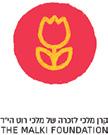




OU ISRAEL CENTER 7 MASSAGE THERAPIST & FITNESS TRAINER 052.673.3704 I www.andyhealth.com | jerusalemmyhome@hotmail.com TUVIA ANDY HAAS BALANCE and FALL-PREVENTION SPECIALIST for OLDER ADULTS Maintain Healthy Bones and Muscles Decrease Stiffness and Joint Pain Increase Strength! Stay Independent! True wholesaler from the diamond boursa with over 25 years experience member diamond dealers club Engagement Rings ∙ Stud Earrings Pendants ∙ Tennis Bracelets 050-573-9061 jeffmor36@gmail.com www.JeffMorDiamondJewelry.com kerenmalki.org 02-567-0602 Keren Malki empowers families of children with special needs in Israel to choose home care. Donations are tax-approved in Israel, US and UK. Honoring the memory of Malka Chana Roth ד”יה 1985-2001, killed in the Sbarro bombing.

FROM THE DESK OF RABBI MOSHE HAUER
OU EXECUTIVE VICE PRESIDENT
A Return to Innocence
Sefer Vayikra is when we tend to find creative ways to discuss anything but the parsha. During this period between Purim and Pesach, when the Torah readings address the obscure details of the animal sacrifices and other ritual issues, we may choose to avoid the arcane and place the focus of our Torah study and insights on the rich and attractive festivals at hand. But perhaps we should take a moment to consider why the traditional Torah reading calendar guides Klal Yisrael to study these matters at this important time.
Traditionally, there is a specific population that is directed to study the book of Vayikra, little children who are beginning to study Torah. As the Midrash (Vayikra Rabbah 7:3) explains: “Children are pure and offerings are pure. Let the pure engage with the pure.” The korbanot (offerings) are reserved for the Temple, an environment defined by its rigorous maintenance of purity and therefore
Dedicated L’iluy Nishmat
Rabbi Irwin Borvick z”l Whose second yahrzeit is on 26 Adar Bet
Judy Borvick and family
most suited – in theory if not in practice – to be dominated and occupied by the purity and innocence of children. This is reflected in the cherubic images of children that were ubiquitous in the Temple, woven into the curtain walls and roofs and sculpted atop and around the holy ark (Shemos 25:18, 26:1, 26:31, Melachim I 6:23-32). Those cherubs – kruvim – were similarly positioned as guardians of the pathway into the original sanctuary of the Garden of Eden (Bereishis 3:24), a place of perfect innocence and purity from which we were banished when we lost our innocence. Just as Gan Eden was a place where Adam and Eve could walk unclothed innocently and unself-consciously, the Holy of Holies contained the image of the male and female kruvim locked in an innocent and unself-conscious embrace (Yoma 54a-b). All of this indicates that we are to relate the minutiae of ritual purity characteristic of Vayikra to a broad and rich context of moral purity.
Which brings us to Pesach. This festival’s focus on the minutiae of chametz removal and the personal purity required in days of old reflects the broad and rich context of the moral freedom that Pesach celebrates. The pre-Pesach season is launched by the reading of Parshat Parah, instructing us regarding the attainment of perfect ritual purity, while the festival itself is a celebration of freedom from the lustful Egyptian environment to a position of moral purity. Egyptian immorality had been front and center to our challenging
8 TORAH TIDBITS 1560 / SHMINI
ל”ז קיוורוב ןמלז קחצי ברה
experience there, beginning with Sarah’s salvation from Pharaoh’s clutches by a show of divine strength, to Yosef saving himself from Potiphar’s wife’s clutches by a demonstration of superhuman self-control. Ramban (Bereishis 12:10) went so far as to see Pharaoh’s original scheme of throwing the males into the river while preserving the females as a national scheme of the Egyptians to claim the Jewish women as their own. It is for this reason that the brit milah, the symbol of Jewish morality, is a foundational component of both the law and the narrative of the Pesach redemption. And it is in this context that Pesach is the time we publicly and unself-consciously read Shir HaShirim, the Song of Songs that the Egyptians would read in a very different way than we do, as we see it as our Sages did, as our biblical and literary Holy of Holies (Yadayim 3:5).
When all of us open the book of Vayikra during these days leading to Pesach it is because this is the season when all of us strive to return to the childish innocence that is essential to our leaving Egypt behind. This is the season when all of us must play the role of tinokot shel beit


The reasons why
we ’ ve s ol d ov e r 11 5 s e a- vi e w pro pe r t i e s ? We ha v e e xc l us i ve pr op er t i es , be s t de al s , an d 50 ye ar s of e xp e r i e nc e . We f oc us e xc l us i ve l y on pr op er t i es i n t he v i br an t ci t y of As hk e l on . ar r an ge f i na nc i ng , t he

A s h k e l n



L I V E O P P O S I T E T H E S E A d av id z @ A s h ke lo n P ro p e rt ie s .c o m
c a l l D a v i d a t 0 5 4 - 4 3 3 - 2 6 2 1 w w w.a s h ke lo n p ro p e r ti e s .c o m
rabban, pure and virtuous school children. Our current need for a return to moral purity is very clear. We are living in a time and place where our innocence is under constant assault, where news and entertainment blend to attempt to force upon us a constant stream of the antithesis of virtue. We need to escape from those messages. We need to open Sefer Vayikra. “Let the pure engage with the pure.”
May the Torah learned from this Torah Tidbits be תמשנ יוליעל
ל”ז
HENNY HIRSCH Z’L on her 10th yartzeit
Rosh Chodesh Nissan - April 9th
הישעמ
You are missed by us all, Your daughter, grandchildren great-grandchildren, and friends
OU ISRAEL CENTER 9
ריאמ תב אלדנעה
הלרעמו
םירעשב הוללהיו... אצמי ימ לייח תשא


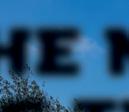












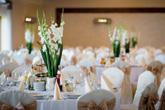



OU ISRAEL CENTER 11 BY WYNDHAM JERUSALEM קיטוב ןיקתו THE NEXT ״BIG THING״! SHABBAT HAGADOL AT THE RAMADA JERUSALEM HOTEL A relaxing way to start Pesach Comfortable & spacious rooms | Family friendly environment | Swimming pool & exercise facilities | Jerusalem Rabbinate Mehadrin, OU Glatt, Delicious Shabbat Meals | The hotel will be Kosher L' Pesach for this Shabbat For reservations: 972-2-6599950 | www.jerusalemramadahotel.com | reservations@ramadajerusalem.com The Ramada Jerusalem Hotel is pleased to host Rabbi Reuven & Rabbanit Shani Taragin, Dov Hendler and many other personalities for Pesach. Almost sold out for Pesach Last rooms available!

ALIYA-BY-ALIYA SEDRA SUMMARY
RABBI REUVEN TRADBURKS RCA ISRAEL REGION
PARSHAT SHMINI
1ST ALIYA (VAYIKRA 9:1-16)
On the eighth day of the inauguration of Aharon and the Kohanim, Moshe gathers the people. He instructs Aharon to offer a chatat and an olah. The people are also to bring a chatat, olah, shlamim and mincha. For today, G-d will appear. Aharon offers his offerings. He offers the people’s offerings. The offerings are brought exactly as instructed.
This eighth day is the long-anticipated moment. G-d’s presence is to appear in the Mishkan. The path to this moment has taken 7 parshiot. The instructions were given to build the Mishkan. Then it was built. The instructions were given for the Kohanim’s garments. And they were made. Instructions were given to inaugurate the Kohanim. And in last week’s parsha the 7-day inauguration was completed. The preparations are all completed.
On this, the 8th day, Moshe passes the baton to Aharon. During the 7-day inauguration, Moshe acted as the Kohen Gadol. Not today. Today, the day after the 7-day inauguration, Aharon is now the Kohen Gadol. And the Kohanim step into their role.
Moshe tells them that the offerings they are to bring today will invite G-d’s presence. In fact, he tells them this 2 times.
At the end of Sefer Shemot, when the building of the Mishkan was completed, G-d’s
presence filled the building. But His Presence then was on His initiative. He instructed us in the Mishkan as a place for Him to dwell. Now, this is our initiative. It is our service of Him. We are trying to invite His Presence.
2ND ALIYA (9:17-23)
Aharon offers the mincha and the shlamim. All the details are performed as commanded. The portion Aharon is to receive is waved as commanded. Upon conclusion of all the offerings, Aharon blesses the people and descends from the offerings. Moshe and Aharon enter the Tent of Meeting, blessing the people upon exiting. The Glory of G-d appears to the people.
All the types of offerings have been brought by Aharon: chatat, olah, mincha, shlamim. The moment of rendezvous of the Divine, of responding to the approach of man is about to occur. Aharon blesses the people with Birkat Kohanim. Well, we call Birkat Kohanim a blessing, but it is really a prayer, a hope: May G-d bless you and keep you. May He shine his face upon you ….
Aharon blesses the people with the hope that their aspiration for G-d’s rendezvous will be realized. Man can approach G-d, do all that is required; but His response is never dictated by us. All we can do is our part. And then wait for His response.
Moshe and Aharon bless the people: May the pleasure of G-d be upon you. May the Shechina dwell on your efforts.
The Kavod Hashem, the Glory of G-d appeared to the people. Their approach and
12 TORAH TIDBITS 1560 / SHMINI
their prayers were granted with a rendezvous with the Divine. Truly a peak, sublime moment of the entire Torah. Man’s approach to G-d is answered with His Presence.
3RD ALIYA (9:24-10:11)
A fire descended from G-d and consumed the offerings on the altar. The people saw, sang out and fell on their faces. Nadav and Avihu, sons of Aharon, took incense, though not commanded, and burnt it before G-d. A fire consumed them and they died. Moshe told Aharon that this is what G-d said: With those close to Me I am sanctified. Aharon was silent. After removing the bodies, Moshe told the other sons of Aharon to not mourn or leave the Mikdash; the Jewish people will mourn. Moshe commanded the Kohanim to not consume wine when serving in the Mikdash, so that they can distinguish holy and profane and to teach the people.
The people are ecstatic with the Presence of G-d. But the ecstasy is shattered by the death of Nadav and Avihu in bringing incense not commanded.
There is much rich commentary on the terrible drama of this story. Ecstasy and death. The simple flow of the narrative seems to rest on how man is to approach G-d. The Mishkan is the place of intimate approach to G-d, the meeting of man and G-d in His home. But the approach of finite man to infinite G-d is fraught with mystery. And hubris. How can a finite man dare to think he can approach the Infinite? It is absurd to even imagine that we could possibly know what would bring Divine favor. We can do so only because – well, because He told us how. G-d invited us, instructed us how to approach Him. And we do so only with great humility,
acknowledging that we are approaching Him only by His invitation.
We have had 7 parshiot of detailed instructions and detailed compliance with those instructions culminating in this moment of the successful rendezvous of man and G-d. The intent of these details – is clearly to impress upon us our inadequacy. We are incapable of fathoming how to approach G-d. He, though, reaches for us, with detailed instructions as to how to approach Him.
It is in this context, after a long, extended narrative of detailed instructions and detailed compliance that the spontaneous desire of Nadav and Avihu to approach G-d with their unauthorized incense must be seen. After all that? You just decide to jump, in a spirit of ecstasy, to approach G-d? Incredible. Shocking.
4TH ALIYA (10:12-15)
Moshe instructs Aharon and his remaining sons, Elazar and Itamar, to consume the parts of the offerings that were brought today that they were entitled to. They need to consume the mincha matza and the meat of the breast in the holy grounds.
Moshe proceeds with the momentous day of the appearance of G-d’s glory, proceeding with the details of the offerings. As if to say, service of G-d need continue regardless of your personal tragedy.
5TH ALIYA (10:16-20)
Moshe inquired about the meat of the chatat but it had been burned, not consumed. He was upset: why did you not consume these in the holy place as commanded? Aharon responded: On a day that this occurred, should we offer the offerings and eat them? Is that proper in G-d’s eyes? Moshe heard and agreed.
OU ISRAEL CENTER 13
Moshe is upset that the offerings had not been consumed by Aharon and his other sons. Aharon, struck speechless by the death of his 2 sons, now challenges Moshe. Does our role as Divine servants eliminate our human feelings of tragedy? Is a holy person untethered to normal human emotion? Am I angelic or a holy man with normal feelings, shattered by the death of 2 sons? Am I not entitled to mourn at least today?
This brief, very brief, confrontation expresses a universal theme of the holy man. Does holiness untether our humanity, our emotions, our desires, our hold on this world? Does the religious leader, the holy man, float above normal human feelings of grief? Does he continue serving G-d sublimating the pain he is suffering?
Religions of the world come down differently on this question. Moshe thought Aharon should rise above his despair. But Aharon objects. And Moshe agrees with him. The holiest person we have, the Kohen Gadol, cries like anyone else on the death of his children. Normal service does not continue as if nothing happened. However holy the holy man is, he is also a person with legitimate feelings. Holy men are holy, but men they remain.
6TH ALIYA (11:1-32)
Of land animals, you may eat those with split hooves and those that chew their cud. Those with only one such sign shall not be eaten: camel, hyrax, hare and pig. Aquatic beings that have fins and scales may be eaten. Predator birds may not be eaten. Insects may not be eaten with the exception of certain grasshoppers. Touching the carcass of certain dead animals renders a person Tameh, impure.
The laws of kashrut begin a series of laws
related to man’s uniqueness: animal-like but with a soul. The Torah specifically legislates those activities that we share with animals: food, procreation, illness, death. In instructing us what we may eat and what we may not, we are taking the activity that we share with animals, eating, and expressing: We are not animals, driven without limit by the need for food. We control what we eat, how we prepare it. Man may be animal-like, but an animal he is not.
7TH ALIYA (11:33-47)
The contraction of Tumah from contact with animals requires immersion in a mikveh. You shall be holy because I, G-d, am holy. I brought you out of Egypt to be My people and to be holy, as I am. You are to distinguish between pure and impure and between living things that may be eaten and those that may not.
We are instructed to imitate G-d’s holiness. In what way are we to imitate Him? In Creation he separated, mavdil; so too we exercise discernment. We distinguish between that which we consume; and that which we don’t. Discernment, self control, structure, in particular in those activities we share with animals are what make us holy, imitating His holiness.
PARSHAT HACHODESH EXODUS 12:1-20
This is the 4th of the special maftir and haftorahs leading to Pesach. In it the mitzvot of Pesach are outlined, including chametz and matza and the laws of the Pesach offering. The Pesach offering is unique in a number of ways. It is brought late in the day, after the afternoon daily offering. It is obligatory but not as a consequence of something like sin or leprosy. Everyone must bring it. And it is not
14 TORAH TIDBITS 1560 / SHMINI
brought on the holiday of Pesach but before it begins. It could be seen as a type of catechism – a reaffirmation by each person, every year, of our individual part in the national mission. It is an affirmation offering, like the Shema is an affirmation prayer. In the Shema we affirm our belief in G-d. The Pesach offering is our affirmation of our place in the wonderful history of the Jewish people. Renewed every year by every person.
HAFTORAH
SHABBAT HACHODESH
YECHEZKEL 45:16-46:18
This Shabbat the reading of the haftorah relates to the Pesach offering that will be brought during the time of Mashiach. This theme is an extension of the HaChodesh Torah reading in which Moshe commands the children of Israel to make arrangements to bring the Paschal lamb.
The haftorah describes the remarkable vision of Yechezkel in which he sees the third Holy Temple. The passage opens with a description of the various karbanot that will be offered in the inauguration and then it mentions the special Pesach offering.
A SHORT VORT
This haftorah is meant to help prepare and inspire us as we move closer to the holiday of Pesach. But even more so, the haftorah reminds us to set our vision on a celebration of Pesach that will include the Pesach offering and in a rebuilt Temple in Jerusalem. May that day come soon!
STATS
26th of 54 sedras; 3rd of 10 in Vayikra.
157.2 lines in a Sefer Torah, rank: 42nd. 6 Parshiyot, 3 open, 3 closed.
91 pesukim - ranks 41st (4th in Vayikra).
1238 words - 41st (5th in Vayikra).
4670 letters - 41st (5th in Vayikra).
MITZVOT
17 mitzvot; 6 positive; 11 prohibitions.
FOR SALE: IN ARNONA
New building, Garden apartment, (3 years), 123 SQm, 35 sqm basement, 27 SqM garden, 6.4 million Shekel

Nahum Glatzer
Gilinski Real Estate
0507225694
BY RABBI CHANOCH YERES
R av, Beit Knesset Beit Yisrael, Yemin Moshe
“And the swine, because he has a parted hoof and is cloven-footed, but does not chew its cud, he is unclean to you.” (11:7) There is a Midrash quoted by the Or Hachaim (Rabbi Chaim ben Atar 1696-1743, Morocco- Jerusalem) that in the Days of the Mashiach it will be permitted to eat from the meat of the swine. It is learned from the very name “chazir”- pig which should be read “yachzor”- it will return to be eaten by us.
Does the Or Hachaim deduce from here that the law of the Torah will one day be changed?
The Or Hachaim rather feels that the character of the swine will change and begin to chew its cud with a four-chambered stomach, thereby allowing it to be eaten and categorized as Kosher.
This is the meaning of the pasuk, “because he has a parted hoof and is cloven-footed but does not chew its cud.” This pasuk implies that when the very character of this animal will change and will begin to chew its cud, then it would lose its un-kosher status and become edible.
- Shabbat Shalom
OU ISRAEL CENTER 15
)ז:אי( םכל אוה אמט רגי אל הרג אוהו הסרפ עסש עסשו אוה הסרפ סירפמ יכ ריזחה תאו

Kehillas Shivtei Yisroel presents its annual
Practical Guide to Preparation and Shopping for Pesach
Sponsored by The Neshei of KSY and OU Israel
and our next step will be to plant a fruit tree. I never thought of myself as being the agricultural type, but the feeling of settling and planting a portion of Eretz Yisrael, has been truly euphoric. Iy”H, when we plant our tree, and eat the fruits that will grow one day, I think we will be able to truly appreciate that unique Kedusha found in the fruit of Eretz Yisrael!
Rav Yaacov Haber, Mara D’Asra with Rav Yissachar Dov Krakowski Director of OU Kosher in Israel, Rosh Kollel of Yeshivas Heichal HaTorah
To conclude, when you buy your Tu B'shvat fruit this year, don’t search for those dried apricots and banana chips imported from Turkey. Rather, head over to the fresh produce and buy yourself some nice juicy Kedusha-filled Jaffa oranges and thank Hashem for bringing you to this land in order to be able to הבוטמ עבשלו הירפמ לוכאל, imbibing that Kedusha in every bite that you take!!
Wednesday April 10th, 2 Nissan 8:50pm (immediately following 8:30 Maariv)
KSY - Nachal Dolev 12
Ramat Beit Shemesh
All women in the community are welcome


OU ISRAEL CENTER 17 OU ISRAEL CENTER 75

Smart Sky specializes in designing motorized shading systems






Smart Sky specializes in advancedcustom shading systems suitable for all seasons.
Our systems offer a variety of enclosing solutions for expanding your living areas, balconies, pools, shuls and businesses.
Smart Sky's professional Jewish installation team use only optimum quality and high grade imported materials.

This time do it the way!
18 TORAH TIDBITS 1560 / SHMINI
ד”סב
Stunning luxurious appearance Opens for Succos Quality service and warranty
Weatherproof

FOR RENT
GERMAN COLONY
Great location, duplex, 4.5 rooms, 109m, ground floor, large sukkah balcony 40m, renovated, master bedroom, parking, Exclusive, 12,000NIS/month
FOR SALE
RASKO CLOSE PARK SAN SIMON
Nice 2.5 rooms, ground floor, balcony, good shape, in a process of evac & rebuild, quiet, Exclusive, good investment! 2,300,000 NIS
ARNONA
Great 3 rooms, 78m, in a building with Shabbat elevator, balcony, good shape, large living room, master bedroom, parking, storageroom, quiet, 2,850,000 NIS
KIRYAT SHMUEL - Large
4 rooms, 96m, Shabbat elevator, balcony with view, good shape, large living room, master bedroom, parking, 3,950,000 NIS
28, Kovshei Katamon Street, Jerusalem
Tel: 02.5633008 - www.ben-zimra.com

OU ISRAEL CENTER 19

THE PERSON IN THE PARSHA
BY RABBI DR. TZVI HERSH WEINREB OU EXECUTIVE VICE PRESIDENT, EMERITUS
And Aaron Was Silent
He was an old man, and in many ways came from a very different world than I. And yet he taught me more than anyone else ever did. One of the things he taught me was that no one suffers as much as a parent who loses a child.
He delivered this lesson to me on a wintry day more than fifty years ago. He was my grandfather, my father’s father, and the family had just broken the news to him that his youngest grandchild, my baby cousin, had died. It was a sudden death, totally unexpected, and everyone was distraught. Grandpa too took the news very hard.
He then did something which surprised everyone present. He rose to leave the room, beckoning to me—his oldest grandchild, then fourteen—to accompany him. We both entered a small adjoining room in which there were a few sacred books, including a siddur. He opened the siddur, read from it for several moments, and then looked up to me, and tearfully whispered:
“There is nothing worse in the world than the death of one’s own child. A parent never recovers from such a blow. May the merciful God protect us all from such a fate.”
I will never forget those words. I remember them verbatim even today. And a lifetime of experience in the vocation of counseling has confirmed the truth of these words over and over again.
In this week’s Torah portion, Parshat Shemini, we read of just such a tragedy. On a bright and sunny spring day, somewhere in the Sinai wilderness, the Tabernacle is being inaugurated. It is an awesome spiritual experience in which “a divine fire descends from on high, in which all the people sing in unison, and fall upon their faces.”
It is the moment of a peak experience, for all the people, but especially for Aaron, the High Priest.
At that very moment, his two elder sons, Nadav and Avihu, step forward and commit a sacrilegious act which dispels the mood, and ruins the entire experience. Commentators differ widely as to exactly what was the sin of these two sons of Aaron. Scripture just says that “they offered God a strange fire, something He did not command of them.”
God’s wrath was expressed instantly. “A fire descended from before Him and consumed them, and they died in the presence of God.”
A parent, a father, lost a child. Not just one, but two. Not through a long and debilitating illness but suddenly, unexpectedly. And not in any ordinary set of circumstances, but in the context of an act of sacred worship.
What is Aaron’s reaction? Does he moan and groan and rend his clothing? Does he scream out in grief? Or does he vent his anger against the God who took his boys from him?
None of the above. “Vayidom Aharon.” Aaron is silent. The silence of shock? Perhaps. The silence of acceptance of fate? Perhaps. Or, perhaps, the silence which results when the range and depth of one’s emotions are too overwhelming to express in words. But silence.
20 TORAH TIDBITS 1560 / SHMINI
If the sage words that my grandfather shared with me in my early adolescence are true, and I have every reason to believe that they are, Aaron remained silent about his grief for the rest of his life. Had he used the words of his ancestor Jacob, he could have said “I will go down to the grave in my agony.”
Soon after this episode in which my grandfather shared his wisdom with me I had the occasion to read a book which taught me a bit more about a grieving parent. It is quite possible that it was precisely during the winter of my cousin’s death that I was assigned the book Death Be Not Proud by John Gunther in my English Literature class.
I somehow doubt that this book is still on the required reading lists of many tenth-graders today. But if it is not on those lists I certainly recommend that it be read, and particularly by teenagers who are learning their first lessons about life and its tragic disappointments.
In the book, the author describes his own son, who was taken from him by a vicious disease. He describes his son positively, but realistically. And he rages against the disease, and in some way, the Divine being who took his son from him. He insists to Death itself that it be not proud about its victory over its victim, his dear child.
It has been decades since I have read Gunther’s book, and it could very well be that I do not remember it with complete accuracy. But I do recall the poignancy and the power with which the author conveyed the full range of his painful emotions. And I will never forget those passages in which he insists that he will never recover from his loss and that the wounds of a parent’s grief for his child can never heal.
Many are the lessons which students of Bible and Talmud have derived from the sad narrative contained in this week’s Torah portion. But there is at least one lesson which every empathic






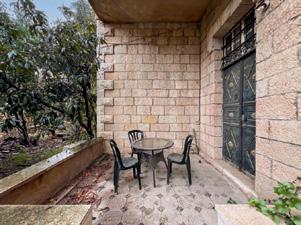
reader will surely learn as he or she attends to the opening verses of Leviticus 10.
It is the lesson contained in the mystery of Aaron’s reaction when his sons are consumed by a heavenly fire. For within the deafening silence of “Vayidom Aharon” are the depths of the terror which every parent dreads, and some parents have suffered. The dread of bereavement, of the loss of one’s child.
As always, in contemplating darkness, light stands out in contrast. Reflection upon death leads to an appreciation of life. The story of the death of Aaron’s children should, if nothing else, enable us to appreciate all the more those of our children who are alive and well.
As we embark upon this new pre-Passover spring season, with all the springtime symbols in the way of life and renewal, let us celebrate and appreciate all of our own offspring, may they live and be well.
OU ISRAEL CENTER 21
+972 (0) 52-2636656
NEW
CONSTRUCTION PRE-SALE IN OLD KATAMON Whatsapp
5164675892 , uk#
usa#
2037697899
COSY 2BR , 60 SQM WITH ELEVATOR, BALCONY, HIGH CEILINGS - 2.690.000 NIS
1-5 BEDROOMS APARTMENT, ONLY 13 UNITS AVALIABLE - 2.45M NIS
RECHAVIA BORDER CITY CENTER - SHATS STREET For
more offers more Call now: 077-9973185
OVERSIZED 3BR - 122 SQM ,CHARACTER AND BEAUTY - 4,7 00,000 NIS
BAKA – FOR SALE IN AN HISTORICAL BUILDING
Gershon Agron 24, Mamilla - Jerusalem
PRIVATE INQUIRIES ONLY
UNIQUE GARDEN APARTMENT IN THE GERMAN COLONY 4 METER HIGH CEILINGS , GREAT POTENTIAL FOR THOSE LOOKING FOR 250-300 SQM
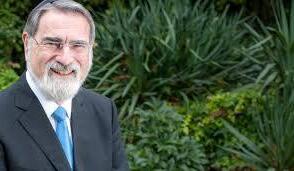
COVENANT & CONVERSATION
THOUGHTS ON THE WEEKLY PARSHA
RABBI
LORD JONATHAN SACKS ZT"L
May
Spontaneity: Good or Bad?
Shemini tells the tragic story of how the great inauguration of the Tabernacle, a day about which the Sages said that God rejoiced as much as He had at the creation of the universe, was overshadowed by the death of two of Aaron’s sons, Nadav and Avihu:
“Aaron’s sons Nadav and Avihu took their censers, put fire in them and added incense; and they offered unauthorised fire before the Lord, which [God] had not instructed them [to offer]. Fire came out from the Presence of the Lord and consumed them, and they died before the Lord”. Lev. 10:1-2
Many explanations were given by the Sages and later commentators as to what Nadav and Avihu’s sin actually was. But the simplest answer, given by the Torah itself here and elsewhere (Num. 3:4, 26:61), is that they

acted on their own initiative. They did what they had not been commanded. They acted spontaneously, perhaps out of sheer enthusiasm in the mood of the moment, offering “unauthorised fire”. Evidently it is dangerous to act spontaneously in matters of the spirit.
But is it? Moses acted spontaneously in far more fraught circumstances when he shattered the Tablets of Stone upon seeing the Israelites cavorting around the Golden Calf. The tablets – hewn and engraved by God Himself – were perhaps the holiest objects there have ever been. Yet Moses was not punished for his act. The Sages said that though he acted of his own accord without first consulting God, God assented to this act. Rashi refers to this moment in his very last comment on the Torah, whose last verse (Deut. 34:12) speaks about “all the strong hand, and all the great awe, which Moses performed before the eyes of all Israel”: תוחולה רובשל ובל ואשנש :לארשי לכ יניעל ,םכיניעל םרבשאו )זי ,ט ליעל( רמאנש ,םהיניעל ,דל תומש( רמאנש ,ותעדל ה”בקה תעד המיכסהו תרבשש ךחכ רשיי ,תרבש רשא )א:
This refers to when Moses] took the liberty of shattering the tablets before their eyes, as it is said, “I shattered them before your eyes.” The Holy One, Blessed be He, consented to his
22 TORAH TIDBITS 1560 / SHMINI
the learning of these Divrei Torah be תמשנ יוליעל HaRav Ya'akov Zvi ben David Arieh zt"l
תומשנ יוליעל ה״ע רטרש קחצי תב הינעמו בייל הירא ןב לאירזעו ה״ע זייא דוד לארשי תב הדלוגו רשא בקעי ןב סחנפ
FORMER CHIEF RABBI OF THE UNITED HEBREW CONGREGATIONS OF THE COMMONWEALTH
opinion, as it is said, “which you shattered” - ‘More power to you for shattering them!’
Why then was spontaneity wrong for Nadav and Avihu yet right for Moshe Rabbeinu? The answer is that Nadav and Avihu were Kohanim, Priests. Moses was a Navi, a Prophet. These are two different forms of religious leadership. They involve different tasks, different sensibilities, indeed different approaches to time itself.
The Kohen serves God in a way that never changes over time (except, of course, when the Temple was destroyed and its service, presided over by the Kohanim, came to an end). The Prophet serves God in a way that is constantly changing over time. When people are too at ease, the Prophet warns of forthcoming catastrophe. When they suffer catastrophe and are in the depths of despair, the Prophet brings consolation and hope.
The words said by the Kohen are always the same. The priestly blessing uses the same words today as it did in the days of Moses and Aaron. But the words used by a Prophet are never the same. As it is noted:
“No two Prophets use the same style.” Sanhedrin 89a
So for a Prophet spontaneity is of the essence. But for the Kohen engaged in Divine service it is completely out of place.
Why the difference? After all, the Priest and the Prophet were serving the same God. The Torah uses a kind of device we have only recently re-invented in a somewhat different form. Stereophonic sound – sound coming from two different speakers – was developed in the 1930s to give the impression of audible perspective. In the 1950s 3D film was developed to do for sight what stereo had done for sound. From the work


Jerusalem Real Estate is My Business
Eta: 054-723-3863
Amazing stand alone homes in OLD
KATAMON, TALBIYA, BAKA, GERMAN COLONY
In OLD KATAMON 220 sqm plus 80 sqm of outdoor space. For renovation, pkg & storage. Includes separate unit. 8,999,000 NIS
In GERMAN COLONY. 300 sqm plus 170 sqm registered garden. Plus parking and roof top terrace. Price: 18,000,000
OLD KATAMON Spacious 253 sqm apartment
FOR RENT. 7 bedrooms, 4.5 bathrooms, large outdoor space , private entrance, parking. 32K/mo
In BAKA, 236 sqm on two floors, plus 80 sqm of outdoor space, high ceilings, authentic Jerusalem bldg with modern addition. 4 bedrooms, office/ or sitting room. Master suite on entrance level. Parking & storage. Price: 15,950,0000
BAKA Two story penthouse 200 sqm. Light open space kitchen & living room, sukkah terrace. Elevator, balconies, 2 parking, elevator, storage room. 12,500,000 NIS
GERMAN COLONY/TALBIYA
400 sqm on one floor, parking, storage, large sukka terrace





Eta Morris Realty, Ltd.
etamorrisrealestate@gmail.com
Eta: 054-723-3863 etamorrisrealty.co.il
OU ISRAEL CENTER 23
of Pierre Broca in the 1860s to today, using MRI and PET scans, neuroscientists have striven to understand how our bicameral brain allows us to respond more intelligently to our environment than would otherwise have been possible. Twin perspectives are needed fully to experience reality.
The twin perspectives of the Priest and Prophet correspond to the twin perspectives on creation represented, respectively, by Genesis 1:1 – 2:3 (spoken in the priestly voice, with an emphasis on order, structure, divisions and boundaries), and Genesis 2:4 –3:24 (spoken in the prophetic voice, with an emphasis on the nuances and dynamics of interpersonal relationships).
Now let us consider one other area in which there was an ongoing argument between structure and spontaneity, namely tefillah, prayer, specifically the Amidah.

We know that after the destruction of the Temple, Rabban Gamliel and his court at Yavneh established a standard text for the weekday Amidah, comprising eighteen or later nineteen blessings in a precise order (Mishnah Brachot 4:3).
Not everyone, however, agreed. Rabbi Joshua held that individuals could say an abridged form of the Amidah. According to some interpretations, Rabbi Eliezer was opposed to a fixed text altogether and held that one should, each day, say something new (Yerushalmi Brachot 4).
It seems that this disagreement is precisely parallel to another one about the source of the daily prayers:
It has been stated: R. Jose, son of R. Hanina said: The prayers were instituted by the Patriarchs. R. Joshua b. Levi says: The prayers were instituted to replace the daily sacrifices. Brachot 26b
According to R. Jose, son of R. Hanina, Shacharit was established by Abraham, Minchah by Isaac, and Maariv by Jacob. According to R. Joshua b. Levi, Shacharit corresponds to the daily morning sacrifice, and Minchah to the afternoon sacrifice. On the face of it, the disagreement has no practical consequences, but in fact it does.
If the prayers were instituted by the patriarchs, then their origin is prophetic. If they were established to replace the sacrifices, then their provenance is priestly. Priests were forbidden to act spontaneously, but Prophets did so as a matter of course. Someone who saw prayer as priestly would, like Rabban Gamliel, emphasise the importance of a precise text. One who saw it as prophetic would, like Rabbi Eliezer as understood by the Talmud Yerushalmi, value spontaneity
24 TORAH TIDBITS 1560 / SHMINI
and each day try to say something new.
Tradition eventually resolved the matter in a most remarkable way. We say each Amidah twice, once privately and silently in the tradition of the Prophets, then a second time publicly and collectively by the shaliach tzibbur, the “reader’s repetition”, in the tradition of a Priest offering a sacrifice at the Temple. (It is easy to understand why there is no reader’s repetition in the Maariv service: there was no sacrifice at night-time). During the silent Amidah we are permitted to add extra words of our own. During the repetition we are not. That is because Prophets acted spontaneously, but Priests did not.
The tragedy of Nadav and Avihu is that they made the mistake of acting like Prophets when they were, in fact, Priests. But we have inherited both traditions, and wisely so, for without structure, Judaism would have no continuity, but without spontaneity it would have no fresh life. The challenge is to maintain the balance without ever confusing the place of each.
These weekly teachings from Rabbi Sacks zt”l are part of his ‘Covenant & Conversation’ series on the weekly Torah teaching. With thanks to the Schimmel Family for their generous sponsorship, dedicated in loving memory of Harry (Chaim) Schimmel. Visit www.RabbiSacks.org for more.

Most Exquisite Properties in Jerusalem!
NEW LISTING! 180m new penthouse on one level in Baka - 5 rooms, large succah terrace, additional 40m storage, high ceilings, Shabbat elevator, parking, close to Nitsanim Synagogue. DEBORAH - 054-4804767
NEW LISTING! Unique penthouse on Smuts St., German Colony - 300m spacious penthouse, private elevator, 6 rooms, double height ceilings, terrace Sukkah, boutique building. MAYA - 054-6650184
NEW LISTING! Stunning 160m apartment with 20m Sukkah terrace, pastoral location, Old Katamon, 5 rooms, 2.5 bathrooms, elevator, parking, storage.
Small quiet lane of German Colony - New private house of 500m built, prime location, plot of 560m, 3 levels, possibility for a pool, high ceilings, full of character and light, views. DEBORAH - 054-4804767
Ben Maimon St- Rechavia - 260m duplex apartment, 5 rooms, terraces, renovated, shabbat elevator, private parking. MAYA- 054-6650184
New development in the best German Colony
Last 200m penthouse, 140m garden apartments, and 3-4 room apartments, Ready in 3 years.
MAYA - 054-6650184
Unique luxurious 450m Penthouse with private pool on rooftop in Talbieh - New boutique residence, high ceilings, several large terraces, private roof, magnificent views of Jerusalem FOR SERIOUS BUYERS ONLY. DEBORAH- 054-4804767
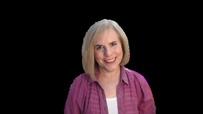

In a luxurious building in Talbieh - 200m on one level, 2 balconies, 2 elevators, gym, lobby, 2 parking spots, storage, can be designed per request
BEST INVESTMENT - PRESALE new development close to Baka - 2,3,4 & 5 rooms, terraces, gardens, private parking, ready in 3 years, great terms of payment!
OU ISRAEL CENTER 25
02-6744000 0544804767 www.real-estate-jerusalem.co.il deborah@realestatejerusalem.co.il
A R E Y O U A D D I C T E D T O S U G A R ? Get free from food obsession Improve metabolic health Lose weight without hunger Tailored to frum lifestyle Z i p p i L i v n e h Nurse, Certified Food Addiction Counselor i n f o @ z l i v n e h . c o m 0 5 5 - 6 6 4 4 8 5 4 If yes, another diet is NOT the solution, THIS PROGRAM IS! S U G A R - F R E E R E C O V E R Y
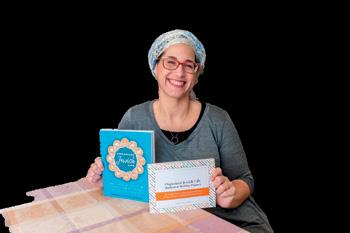


MICHAEL 052-3202488 be


In the heart of calm and pastoral BAKAPrivate arab house, 6 rooms, 500m + possibility of building 250m, huge garden, approx. 700m, completely renovated, underfloor heating + a/c, large parking, 5 bathrooms, 5 toilets, green
ALBIYA - Beautiful & bright apartment, 70m with sukka balcony & Shabbat elevator, large living room, fitted kitchen, bathroom with bathtub & restroom, free parking for residents,
MENDEL 0528980111
YAELLE 058-7792141
BAKA - 4 rooms, 6,500 NIS
New penthouse, 4 rooms in a small luxurious building with character, alone upstairs, 3rd floor + elevator, 4 orientations, 3 toilets, 2 bathrooms, terrace / sukkah, 70m,
- 4 rooms, 7,900 NIS - 3 rooms, 6000 NIS
MICHAEL 052-3202488
5450000 NIS MENDEL 052-8980111
MOSHAVA / In a building after TAMA 38, new apartment, 4 rooms, 3rd floor + elevator, balcony/partial sukah, opened sight, 2 bathrooms, calm, parking
MENDEL 052-8980111
HAMOSHAVA GERMANIT - Large beautiful house, 7 rooms, 300m on 3 levels with elevator, private garden, 175m, beautiful roof terrace, 100m, quiet location, pastoral & green, 2 parking spots, 2 large storage rooms, basement, building rights
BAKA / MEKOR HAIM - 4 rooms, 90m, 2nd floor + elevator, completely renovated, fireplace, a/c, gas heating, very central, close to all amenities
MENDEL 052-8980111

Near Arnona Hatzaira, in a step building, very large 5-room apartment + balcony/sukkah, 40m, renovated, 3rd floor, private entrance, quiet, potential for extra independent unit
MICHAEL 052-3202488
ARNONA – 3 rooms, that will be transformed to 90m, 3rd floor with elevator, store-room, parking
ONLY 2550000 NIS
MICHAEL 052-3202488
In the pastoral BAKA - quiet and central, stunning villa 350m, in a magical atmosphere, designed, pool, 4 bedrooms, cinema room and more, 4 bathrooms, garden, parking
MIKAEL 052-3202488
ARNONA HATZEIRA - Very spacious penthouse, 120m, 4th floor + elevator, huge terrace / succah, 75m, open view, 2 parking spaces, cellar, 3 toilets, quiet, completely renovated, immediate entrance
MICHAEL 052- 3202488
26 TORAH TIDBITS 1560 / SHMINI
ready for every thing
up your copy and be prepared for every occasion and Jewish life cycle event.
Pick
help you prepare for every event
Checklists to
organizedjewishlife.com
@BALAGANBEGONE
Holiday
online at amazon.com or in Israel exclusively at
Companion Shabbat &
Planner
Makes a great gift

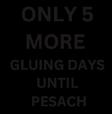
SHAAREI
*Duplex!
*New
TALBIEH
*
*New
NACHLAOT
2 rms, priv entr, storage room, NIS 2,190,000
*Renovated 3 bdrm, ensuite MB, succah, low floor
*160 sqm 4 bdrms, garden, storage, parking
HAR NOF
Centrally Located– 10 room duplex with 400 sqm garden (room for a pool), excellent condition
MEKOR



27 1898 2024 PESACH IS COMING! PROFESSIONAL GLUING for all your loose & shaky wood furniture PROFESSIONAL GLUING for all your loose & shaky wood furniture Strengthen your table and chairs for the SEDER Strengthen your table and chairs for the SEDER 25% OFF ALL LEG TIPS for quieter chairs - valid until 15.04.24 25% OFF ALL LEG TIPS for quieter chairs - valid until 15.04.24 Expert Sofa & Recliner repair Expert Sofa & Recliner repair LAST DAYS!! DON’T WAIT - CONTACT US TODAY! WAIT JERUSALEM SALES FOR MANY MORE PROPERTIES: 02-651-4030 NEW PROJECTS - Excellent Opportunities Desirable Neighborhoods - Call For Information
CHESSED / RECHAVIA
25
5 bdrms,
sqm kitchen, succah, shabbat elevator, 2 parking, storage.
view
228 sqm duplex penthouse, 30 sqm succah, shabbat elevator, parking,
- On Private Land
Exceptional boutique building with 3 apartments on 900 sqm lot
250 sqm + 200 sqm garden
OLD KATAMON
CHAIM - NEW PROJECT
Eiferman Properties www.eifermanrealty.comLtd.
126 sqm, spacious 4 bdrms, succah, 3 exposures, 2 parking, storage. Close to Baka & G. Colony
 BY RABBI NACHMAN (NEIL) WINKLER Faculty, OU Israel Center Rabbi Winkler's popular Jewish History lectures can be viewed by visiting the OU Israel Video archive: https://www.ouisrael.org/video-library
BY RABBI NACHMAN (NEIL) WINKLER Faculty, OU Israel Center Rabbi Winkler's popular Jewish History lectures can be viewed by visiting the OU Israel Video archive: https://www.ouisrael.org/video-library
A Future That Can Begin Today
The Tana’im in our Mishna established this Shabbat’s special maftir reading from Parashat Bo, in order to remind the congregation that the time to offer the paschal sacrifice, was quickly approaching. The selection from the 12th perek of Shmot, describes the laws of the first Korban Pesach, including Hashem’s unique instructions regarding the very first paschal
With tremendous gratitude to Hashem, we wish our amazing Dad/Saba/Saba Raba Richard Schwartz a huge Mazal Tov
On your 90th Birthday!
May you continue till 120 in good health, with happiness and nachat, together with Mom/Savta/Savta Ravta Keep making the world a better place!
From your family, with all our love
offering that was offered in Egypt itself. For the same reason, Chazal’s choice for this week’s haftarah also speaks of the unique laws that would apply to the future paschal offerings that would take place in the third Temple during the Messianic era. Many of the laws quoted do not coincide with the laws of the Torah, causing some consternation among the rabbinic scholars. Yet, as the Radak, suggests, and, as we have explained in earlier columns, the new era that would be heralded by the arrival of Mashiach ben David, would bring with it different laws, more demanding observances, in order to create a higher level of spirituality and purity among the people.
Fittingly, the opening verses of the haftarah, tell of the special sacrifice that would be offered on “the first day of the first month”, Rosh Chodesh Nisan, and whose blood would be spread on the doorposts of the Sanctuary. Clearly, such a ritual reflects the procedure that Moshe gave to B’nai Yisra’el in Egypt, as they too spread the blood of the Paschal Offering upon doorposts (of the Israelite homes) the evening before their exodus to freedom. Furthermore, when the haftarah reading continues, we learn of how the navi Yechezkel details the future seven-day holiday during which matzot would be eaten, another mitzvah that is included in our Maftir reading as well.
However, we would be mistaken were we to see these interesting contrasts and
28 TORAH TIDBITS 1560 / SHMINI
PROBING THE PROPHETS
dear parents whose yahrtzeits are in Kislev
been memorialized in a popular song, "An eternal people does not fear the long and arduous path."
Doris Weinberger a"h
number is 157,600. The total count of the army age men is 603,550 without the tribe of Levi.
ולסכ 'ד -ה"ע המלש לאקזחי תב האל הרובד
comparisons between the original offering and the yet-to-be sacrifices of the future, simply as reminders of Chag HaPesach. It might well have been the purpose of Chazal to teach us that Pesach is to be understood as more than a reenactment of the past exodus. It must also be seen as the promise of our future redemption.
Patience is necessary for those who follow Isaac's way. But a wise woman taught us that patience is but another name for hope. That woman was Jane Austen, who put these words into the mouth of one of the characters in her great novel, Sense and Sensibility: "Know your own happiness. You want nothing but patience—or give it a more fascinating name: call it hope."
Max Weinberger z”l
ולסכ ז"כ -ל"ז בד ןב ךלמילא
The people travel and camp with the Mishkan in their midst. Physically and metaphorically. We travel our history with G-d in our midst. While the distinct feeling you get in the detailed description of where each tribe encamped is the feeling of an army encampment, there is another layer of meaning. Yes, regimented. Specific. Detailed. Organized. But an army for which purpose? To fight the anticipated foes in the Land of Israel? Or to be the army of Hashem? A fighting army with its G-d in its midst? Or both?
Greatly missed by their children, grandchildren and great grandchildren
Rav Aryeh and Dvora Weinberger
Bernie and Leah Weinberger
Menachem and Hannah Katten
There is, however, another important lesson woven within the words of Yechezkel Hanavi. It is a subtle, and yet most crucial, lesson that we are expected to learn and pass on. In the verses preceding the haftarah itself, Yechezkel admonishes the leaders of Judea, telling them that no longer would they use their power to enrich themselves at the expense of the common people. Rather, they must fulfill their true purpose as leaders in Israel: to pursue justice and righteousness by having “honest scales and weights”, by guaranteeing equal and true coinage and, by doing so, removing the lawlessness and corruption that had filled the land.
In observance of the Shloshim of our friend Yehuda Leib Berren z"l
Rav Menachem Weinberg will give a shiur in his memory "Heroic Joy"
Monday evening, 23 November/ 8 Kislev 7:30pm
Zoom Meeting: 853 8980 1519
Password: Yehuda
4th aliya (3:1-13) Aharon’s sons’ names were Nadav, Avihu, Elazar and Itamar. Nadav and Avihu died without children. Elazar and Itamar serve as Kohanim with Aharon. Take the Leviim: they are to serve Aharon. The Leviim are responsible for the Mishkan: to support the Kohanim and the people, to facilitate the running of the Mishkan. The Leviim shall take the place of the first-born, who became obligated to me when saved in Egypt.
Ultimately, the future redemption brought by Mashiach ben David would not be only one demanding the purity of Mikdash or that of a close adherence to mitzvot. Rather, Hahsem’s demand will be to build a society dedicated to the purity of action and of deed, a world based upon relationships of ben Adam laMakom as well as those that shape our dealings ben Adam l’chavero.
descendants of Levi, son of Yaakov. Their lineage, at quite some length, is given in the next aliya.

SEALING SERVICES
5th aliya (3:14-39) Count the tribe of Levi by households, from 1 month and older: the households of Gershon, Kehat and Merari, the sons of Levi. The sons of Gershon, Kehat and Merari are listed. Gershon’s family, from a month and above, is 7,500. They camp to the west of the Mishkan. Their task was to transport and be responsible for the curtains and coverings. Kehat numbered 8,600, camping to the south. They were responsible for the vessels: Aron, Menorah, Table, altars. Merari numbered 6,200, camping to the north. Responsible for the structure of the Mishkan; the walls, supports and beams. The total of the tribe of Levi is 22,000. On the front side, the east of the Mishkan, Moshe and Aharon and fam-
shmuelnathan4@gmail.com

The encampment around the Mishkan had 2 layers. The Leviim were in close, on 3 of the 4 sides of the Mishkan. The 4th side, the leading side, had Moshe and Aharon. The entire 12 tribes were farther removed
There are 2 groups mentioned here: Kohanim and Leviim. The lineage of the Kohanim is given. It just doesn’t take much room. Because Aharon is a Kohen and his sons. But he only has 2. So the entire lineage of the Kohanim is 3 people. The Leviim, on the other hand, are an entire tribe,

It is a future we look forward to…and one we can start building today as well.
Every person who was not born in Israel and lives in the Holy Land should celebrate his/her ALIYANNIVERSARY annually! REMEMBER! WITH ALIYAH BLESSINGS! The NEAMANS
The 3 sons of Levi were family groups; Gershon, Kehat and Merari. They had full responsibility for the Mishkan. Their tasks fell in categories. Gershon; textiles. Kehat; furniture. Merari; building. Gershon took care of the curtains and coverings. Kehat, the important main vessels of the Mishkan. And Merari the structure of the building.
6th aliya (3:40-51) Count all the firstborn of the age of a month and above. The Leviim are to replace the firstborn. There were 273 more
OU ISRAEL CENTER 29 OU ISRAEL CENTER 15
052-385-9944 • 054-499-9043 be in
נ"על our
loving memory and
14 TORAH TIDBITS 1516 / BAMIDBAR
before after Contact us now for a consultation! Revitalize Your Home: Sofa | Mattress | Carpet with CLEANEXT Cleaning Experts! Transform your living space with our professional cleaning services. Say goodbye to stains and odors, and hello to freshness and comfort. Experience our exceptional service with a highly recommended, no-obligation demonstration in your home. 052-2200222 הידמ קויד We work all over Israel

RABBI SHALOM ROSNER
Rav
Kehilla, Nofei HaShemesh Maggid Shiur, Daf Yomi, OU.org Senior Ra"M, Kerem B'Yavneh
Balancing Physical and Spiritual Endeavors
התיה םויה ותוא :אינתו …ינימשה םויב יהיו .ץראו םימש וב וארבנש םויכ ה”בקה ינפל החמש םתה ביתכו , ”ינימשה םויב יהיו” :אכה ביתכ ארקיו( .דחא םוי רקוב יהיו ברע יהיו )ה:א תישארב( )ב:י הליגמ ,א:ט
The above referenced Midrash draws an analogy between the creation of the world and the inauguration of the Mishkan. This analogy is based on the use of the same term ”יהיו” (Vayehi) that appears in both instances. This word יהיו appears throughout the Torah, why does the Midrash specifically correlate creation with the Mikdash?
CREATION AND THE MISHKAN
Rav Blumensweig, the Rosh Yeshiva in Yerucham, in his Sefer - םככותב תכלהתהו offers an intriguing explanation. Creation was the beginning of a process which was completed with the inauguration of the Mishkan. The purpose of creation was to connect the upper and lower worlds and the Mishkan completes that task. It is a place in which we establish a place on this earth for God to dwell.
SPACE FOR MAN VS SPACE FOR GOD
Although there are similarities between creation and the Mishkan, in a certain respect they are opposites. God is everywhere. In order to enable other items and beings to exist in the world, as Kabbalah suggests –there was an act of םוצמצ – God in a way
contracted himself to make space for man and other creations. The Mishkan is a place that we sanctify and designate as a space for God to dwell in our midst.
RELATED TRANSGRESSIONS
It is interesting to note that at the completion of both events, creation of the world and the inauguration of the Mishkan catastrophes ensue. At the end of creation, Adam and Chava are overtaken by their desires to partake in the delicacies of the forbidden fruit and transgress. At the conclusion of the inauguration of the Mishkan, Nadav and Avihu are overtaken by the spiritual experience and offer a sacrifice that was not part of the scheduled and desired offering of the day. Due to their spiritual high they disconnected from the physical world and acted in a manner that they felt would enable them to get closer to God.
EXTREME BEHAVIOR
Creation led man to feel independent and able to satiate his desires. The Mishkan was infused with kedusha and led man to strive for closeness to Hashem. Both Adam and Chava as well as Nadav and Avihu went to extremes. Adam and Chava leaning to physical pleasures, and Nadav and Avihu seeking spiritual heights.
Perhaps the lesson to be derived from
30 TORAH TIDBITS 1560 / SHMINI
both failures is to avoid extremes. One is to establish the proper balance between physical and spiritual pursuits. Too much emphasis on either can lead to tragic results. Later in the parsha the Torah distinguishes between kosher and non-kosher animals. Between tahor and tamei animals. We need to be able to distinguish between these two worlds. Such a distinction teaches us that there are boundaries we need to maintain in all aspects of our life.
May we be able to constantly evaluate our priorities and maintain the proper balance between our physical and spiritual endeavors.

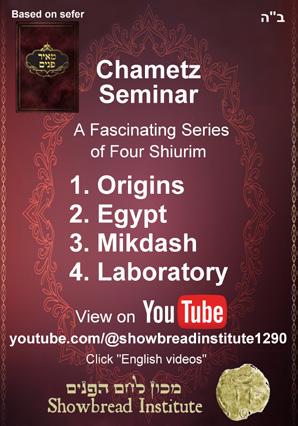

OU ISRAEL CENTER 31
REBBETZIN SHIRA SMILES
Faculty, OU Israel Center
Mindful Motions
“Ki ani Hashem ham’aleh etchem mei’eretz Mitzrayim li’hiyot lachem le’Elokim v’hiyitem kedoshim ki kadosh ani – I am G-d, and I brought you out of Egypt to be your G-d. Therefore, since I am holy, you must [also] remain holy.” (Vayikra 11:45) Rashi elucidates; Hashem took us out of Egypt so that we would accept His commandments. This sounds simple, yet it lends powerful insight and meaningful direction as to our purpose.
In the introduction to his sefer Ba’alei Hanefesh, the Ra’avid writes that a person must know he has a Creator who has dominion over him and has given him specific laws to guide his behavior. There are laws concerning marriage, agriculture, business, and dress; it is all encompassing. Rav Scheinerman in Ohel Moshe adds that the key is to live with awareness, to be fully cognizant and realize that mitzvot suffuse every area of life. The Saba of Kelm would comment that one can go through the motions of doing many mitzvot, yet without any thought or connection, he will remain a simple person. In contrast, Rav Abramsky z’l described the Brisker Rav z”l as one who’s every move was based on the Shulchan Aruch. He stood because the Shulchan Aruch said to stand, he spoke how and when the Shulchan directed. Every action was
guided by the particular service of Hashem at any given moment. Our challenge is to live thoughtfully and mindfully, recognizing every mitzvah opportunity as it is presented. Thus, we will continue to grow and deepen our relationship with Hashem.
One of the purposes of the Egyptian enslavement was to prepare Am Yisrael to serve Hashem unconditionally, to understand and cultivate what it means to be completely devoted to the will of a master. As such, the Baal Shem Tov Hakadosh explains the words of our verse, “li’hiyot lachem le’Elokim” to mean that we must take the “you,” the aspects of our physical selves, and dedicate everything to live with intention, “shiviti Hashem lenegdi tamid.”
Mesilat Yesharim teaches us that the yetzer hara schemes to make us so busy and distracted that we have no time to contemplate our actions and connect more deeply. In allowing the yetzer hara to do this, we create our own enslavement. Once we realize this, we can take steps to extricate ourselves from this self- imposed bondage to perform mitzvot with more focus and desire to build an authentic connection. Hashem liberated us from Egypt because He wants this relationship. Let us be present and invest in the relationship the way it deserves.
 donated by Marion & Michael Silman Ita Rochel 02-560-9125
donated by Marion & Michael Silman Ita Rochel 02-560-9125
32 TORAH TIDBITS 1560 / SHMINI



rom rom vdut to Cherut! Slaving away hosting the seder this year? Join us and indulge yourselves for Shabbos Chol Hamoed and Chag Sheini. 14-23 of Nisan > 04.22.24-05.01.24 Last rooms available! info@wolfglatt.com | www.wolfglatt.com U.S. 929.269.4433 | IL 052.894.5560 Exclusive Full Board Program with Wolf Glatt
WHEN SECONDS COUNT
UNITED HATZALAH IS THERE!


UNITED HATZ AL AH

www.israelrescue.org
United Hatzalah's network of 7,000+ first responders help save thousands of lives each year across Israel by providing medical treatment in an average response time of 90 seconds or less.
34 TORAH TIDBITS 1560 / SHMINI




OU ISRAEL CENTER 35 Beit Tovei Ha’ir Chodesh Tov Club … 10:00 Gathering & Refreshments … Guest Lectures on Tanach, Jewish History & Current Events Shabbat and Chag Programs Professional & caring staff Swimming Pool, Spa and Gym 70% English speakers Healthy Gourmet Meals Luxurious Private Apartments Cultural Activities Medical Care 24/7 Beit Midrash & Shiurim For more information > contact: * 6422 www.tovei.co.il | Binyamin +972-54-4465276 Luxury Assisted Living for Religious Seniors - 36 Malchei Yisrael Street, Jerusalem Small Nation, Big Impact! Rabbi Ken Spiro Exodus of the Soul Rabbi Hagai Lundin Tuesday | April 9, 2024 | 1 Nisan Opentoactive seniors70+whoare consideringseniorliving. Reservationrequired NisanChodesh 11:30 10:30 in Hebrew





36 TORAH TIDBITS 1560 / SHMINI Hachnassat Kalla - YAD GITTEL Get your trousseau (nedunya) at COST PRICE For more details call 0523882751 or Sonia 0528066664 yadgitteltrudy@gmail.com Place orders until April 14 Get 5% off when you place order by April 10



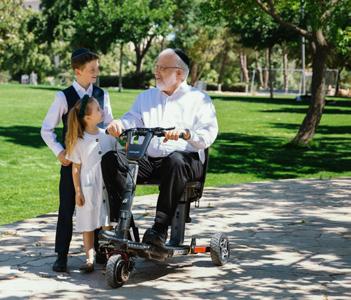


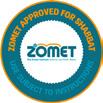


OU ISRAEL CENTER 37 ARE YOU CONCERNED ABOUT... Alzheimer's? Dementia? Memory loss? Cognitive decline? Forgetting places/names? Losing things? Functional Medicine Clinic VISIT OUR WEBSITE AT BEYOUNG.LIFE 02.622.8674 info@beyoungclinics.com Dr. Barry Dinner MBBCH, ABAARM is a highly experienced physician, certified by the American Academy of Anti-Aging Medicine, who offers a unique approach to anyone looking to prevent and treat Alzheimer’s disease, memory loss or cognitive decline. OTHER SPECIALTIES Cardiovascular • Stress Hormone • Gastrointestinal Ask us about our new super brain supplement ReMIND

RABBI JUDAH MISCHEL
Parshas HaChodesh: Ascend Anew
Reb Mendel Futerfas was a legendary mashpiah, known for his incredible self-sacrifice and resilience in the face of Soviet persecution. With incredible resolve and inner strength, Reb Mendel maintained his faith and sense of self throughout 14 years of brutal incarceration and exile in Siberia. One of the Lubavitcher Rebbe’s most loyal and dedicated soldiers, Reb Mendel earned the compliment “a real chasid” .
At a farbrengen, Reb Mendel spoke of an alter Lubavitcher chasid named Reb Yeshayah Shapiro, who had a major impact on his own personal development. Reb Yeshayah was known as an oveid, a “servant of Hashem”, a serious person whose service of God was exceptionally intense. His weekday Shemoneh Esrei could last more than two hours. Reb Mendel once asked Reb Yeshaya how he was able to halt kup and stay focused for such an extended amount of time. Reb Yeshayah answered that many years earlier, as a young man, he struggled with maintaining his kavanah during davening, and went to consult with the Rebbe Maharash, zy’a.
When Yeshayah told the Rebbe that he felt that his prayers lacked vitality and focus and
that he did not know how to keep his mind on the davening, the Rebbe grabbed the young man by the lapels of his jacket, pulled them to the side, pointed at his heart, and said “Oyyy! Shayalah! יעב אבל אנמחר! Hashem, the Compassionate One, desires the heart!” The Rebbe Maharash began to cry, “Oy! A Yiddishe heartz, a Jewish heart! The heart… the heart!” Reb Yeshayah told Reb Mendel, “For more than fifty years, ever since the Rebbe tore open my coat — and my heart —I have felt inspired anew each day… and haven’t stopped davening.”
In preparation for the upcoming month of Nissan, this Shabbos we are reading Parshas HaChodesh. In addition to the foundational mitzvah of establishing and keeping the Jewish calendar, we address different aspects of Aliyah l’Regel, our pilgrimages and ascents to the Beis haMikdash throughout the year: רעש ךרד אצי תווחתשהל ןופצ רעש ךרד אבה אל הנופצ רעש ךרד אצי בגנ רעש ךרד אבהו בגנ אצי וחכנ יכ וב האב רשא רעשה ךרד בושי
Whoever enters by the northern gate to bow low shall leave by the southern gate, and whoever enters by the southern gate shall leave by the northern gate. He shall not go back through the gate by which he came in, but shall go out by the opposite. (Yechezkel, 46:9)
The pasuk seems to be over-complicating what seems to be a simple and clear logistical directive: the route used as entry and exit to theTemple should be opposite each other, as
38 TORAH TIDBITS 1560 / SHMINI
Executive Director, Camp HASC Author of Baderech: Along the Path of Teshuva (Mosaica 2021)
Rashi confirms: אצי וחכנ יכ — “He leaves from the opposite way that he entered.”
Rav Yaakov Bender, shlit’a, beloved rosh yeshivah of Darchei Torah in New York, reveals a teachable moment, and an important foundational value in Avodas Hashem based on the seemingly extraneous wordiness of Yechezkel haNavi’s instructions.
Like Reb Yeshaya, one of the great challenges many of us face in Avodas Hashem is the habituation of halachic observance and service of God. When we become accustomed to consistent fulfillment of Torah and mitzvos, there is a danger of falling into perfunctory routine, going through motions until our observance becomes an automatic, thoughtless, rote activity.
Reb Menachem Mendel of Kotzk railed against this ossification of spiritual life, demanding renewal, freshness and a constant, deliberate choice to serve HaKadosh Baruch Hu with consciousness, insight and sincerity. If one davened today only because he davened yesterday, he is worse than a scoundrel.
This, the great Mirrer Rosh Yeshiva and author of Sichos Mussar, Rav Chaim Shmulevitz, says is the intent underlying the prophet’s instructions. If you ‘entered through the north’, go out a different way; If one’s arrival is via the southern gate, find a new way to continue onward toward your destination. Don’t fall into habitual performance; take a different route, change things up, refresh your kavanah.
Rebbe Eliezer ben Arach was considered by many to be the greatest Sage of his generation, a maayan misgaber, an ever-flowing spring of inspiration (Avos, 2:8). A string of events led Rebbe Eliezer to a far away land where he
was separated from his friends and students. Isolated and alone, his brilliance and Torah mastery faded. Upon his return to the Beis Medrash of Yavneh, Rebbe Eliezer was called to the Torah and honored with the aliyah of Parshas haChodesh. Instead of reading שדחה םכל הזה, “Consecrate the new month,” he mistakenly read the verse as םבל היה שרחה, ‘Their heart was dulled.’ (Shabbos, 147b)
The promise of great leadership and impact turned into disappointment. His forgetfulness was understood as a Heavenly repercussion of detaching from the dynamism, newness, purity and vitality that he cultivated within a chaburah which challenged him and encouraged him to grow and ascend to higher and higher levels.
May the arrival of Shabbos haChodesh help us transform and enliven any dullness of the heart. On this Rosh Chodesh, “the new year of months”, may we generate a rosh chadash, a ‘new mind’, consciousness and clarity of kavanah. As we leave the old year may it be from a higher gate, and higher state, than the one which we entered last Nissan. And from there may we stay baderech aliyah, on a path of ascent, as the Gemara (Pesachim, 19b) says, ךרד ןירוהט — הילע, “If vessels were found on a path ascending (from a mikvah, they are considered) tahor, pure, free from stagnant energy. May we overcome all spiritual stagnancy and dullness by renewing our commitment to choose new, higher entrances into the world of holy growth and Divine service.
OU ISRAEL CENTER 39
Mazal Tov HONEY on your 100th Birthday Much love Marcelle




42 TORAH TIDBITS 1560 / SHMINI


OU ISRAEL CENTER 43


44 TORAH TIDBITS 1560 / SHMINI


OU ISRAEL CENTER 45
Be’er Tziporah a"h - Bottled Water Gemach
Walking down King George St. in Jerusalem and want a cold bottle of water?
Come help yourself to a bottle at 52 King George.
In loving memory of Yoni’s wife Tziporah a"h, a true Eishes Chayil, always full of chessed, kindness and laughter, and brought life and strength to so many people, that she touched! She was like Aron, who loved peace and pursued peace. Yoni thanks Hashem for having the opportunity of having Tziporah in his life, to learn of her caring, patience and happiness, to overcome her challenges. May Tziporah's Neshama be a light onto the world, in a time of darkness, and may her Neshama shine to Gan Eden. Yoni misses Tziporah with tears in his eyes, as Hashem gave him a gift, a crown jewel, now he returns her to Hashem. With thanks and Toda. Love, Yoni

SHIUR SPONSORS
TO SPONSOR A SHIUR CONTACT
Chana Spivack - 050-229-4951 or donate online: https://www.ouisrael.org/donate/ou-israel-center/
THURSDAY, MARCH 28TH - RABBI TAUB’S SHIUR
was sponsored by Gittie Edery in memory of her brother ל”ז יולה םהרבא ןב בקעי השמ
TUESDAY, APRIL 2ND - RABBI MOSHE SNOW’S PIRKEI AVOT SHIUR was sponsored by Manny Ruchelsman in memory of his mother ה”ע דוד בקעי תב דחי
TUESDAY, APRIL 2ND - REBBETZIN SHIRA SMILES SHIUR was sponsored by Naomi & Peter Neustadter - with great Joy on the occasion of their granddaughter, Eden Gabriel Goldstein’s Bat Mitzvah
RABBI SNOW’S SHIUR
is generously sponsored for this academic year by Scott & Linda Haniford. RABBI SHAI FINKELSTEIN'S SHIUR
Sponsored for this academic year by the Sondhelm and Wertenteil families in memory of Mel David z"l ל"ז הקבר אביוטו ריאמ םהרבא ןב לדנמ םחנמ
RABBI ADLER’S SHIUR
Sponsored for this academic year by the Frist family in memory of their beloved daughter and sister Elisheva Frist a"h - ה"ע ןמלז תב אמיס עבשילא
RABBI GOLDSCHEIDER'S SHIUR
Sponsored for this academic year תמשנ וליעל ל''ז המלש ןב בוט םשו ה''ע םהרבא תב םירמ
REBBETZIN SHIRA SMILES SHIUR
Sponsored for this academic year by Dr. & Mrs. Menachem Marcus in memory of their parents, Rose & Dr. Emanuel Marcus z"l and Rosi & Ernest Strauss z"l ל"ז סוקרמ השמ ןב יכדרמו ריאמ ףסוי תב לזייר ל"ז סוארטש דוד ןב לאינדו םהרבא תב דומיל
To help refill the supplysend tax deductible donations for Be’er Tziporah a"h Bottled Water Gemach to Chabad of RechaviaRabbi Yisroel Goldberg email Rabbi@JerusalemChabad.org 02 800-1717
www.JerusalermChabad.org/DonateShekels
בוט יכ 'הל ודוה
PLEASE NOTE DEADLINES FOR ADVERTSING THROUGH PESACH & YOM HAATZMAUT
Shabbat, April 12-13 (Tazria)
Shabbat, April 19-20 (Shabbat Hagadol, Pesach, Acharei)
Shabbat, May 10-11 (Kedoshim)
Shabbat, May 17-18 (Emor)
» Sun., April 7
» Thur., April 11
» Sun., May 5
» Thur. AM, May 9
RABBI BREITOWITZ'S TUESDAY SHIUR - MINCHAT CHINUCH
Sponsored for this academic year by Rabbi Refoel & Sharon Auman in memory of their parents Edith & Reiner Auman z”l
ד"יה לאפר תב ה"ע רתסאו ל"ז קודצ ןב הנוי and their son Rabbi Shmuel Eliyahu Auman z"l
י"נ לאפר ברה ןב ל"ז והילא לאומש ברה
RABBI GOLDIN'S SHIUR
Sponsored for this academic year by Dr. & Mrs. Menachem Marcus in memory of beloved aunts Irma Haas a"h and Hilde Myer a"h
RABBI MANNING'S SHIUR
Sponsored for this academic year תמשנ יוליעל ל''ז ןמלק ןב גילזו ה''ע תידנרב תב הנרב
RABBI TAUB'S WEEKLY THURSDAY PARSHAT HASHAVUA SHIUR
Sponsored by The Jewish Legacy Foundation
המלש האופר
Yosef Ezriel ben Chaya Michal
Chana bat Bruriah
Benzion Simcha Mendel Ben Chana Rachel
Feyge Sara bas Chaya Peshe
Nechama Charna bat Feigel
Leah Naomi bat Tova
Pesach ben Sarah Frieda
אנדהאב לרפ ןב עשוהי םהרבא
הגלוא ןב קיזייא בל
הלחמ ןב ןתנוהי
46 TORAH TIDBITS 1560 / SHMINI
Israel’s goals include:
a warm and welcoming Jewish community for students and young professionals; providing engaging and dynamic Jewish education; providing a supportive home environment for Olim; providing resources for personal and religious growth, including personal mentoring, Aliyah support, religious guidance and leadership development. Current JLIC programs in Israel include: Reichman University - Herzliya; Bar Ilan University - Givat Shmuel; Tel Aviv University; Tel Aviv for Young Professionals; and Jerusalem. Contact: Rabbi Jonathan Shulman, Director of OU-JLIC in Israel shulmanj@ou.org
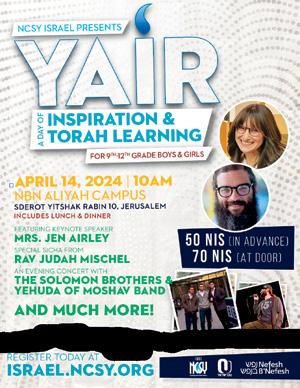
April 14 2024 | 10AM April 14 2024 | 10AM N US
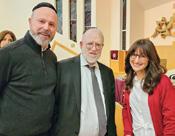


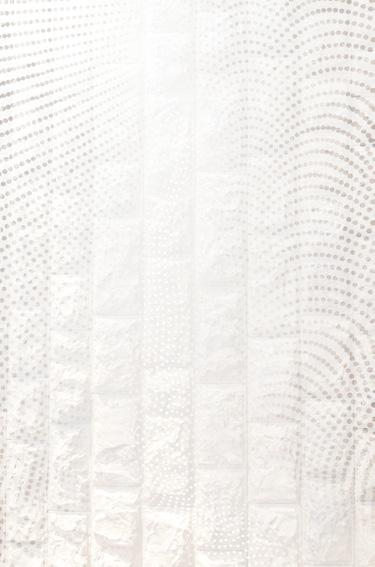

Birkat Ha-Ilanot
When one sees blossoming fruit trees for the first time during the month of Nisan, one should say this blessing: ךְֶלֶמ
Tzitzit tying at the OU Israel Center with Ruti - no experience needed Mondays at 1:30pm and Wednesdays at 12:00pm
This blessing is said just once a year—the first time that one sees it.






OU ISRAEL CENTER 47 P c p e a c Distributed
תוֹנָהֵל תוֹבוֹט תוֹנָליִאְו
וּניֵהלֹ-ֱא 'ה הָתַּא ךְוּרָבּ וֹמָלוֹעְבּ רַסִּח אֹלֶּשׁ םָלוֹעָה תוֹבוֹט תוֹיִּרְבּ וֹב אָרָבוּ םוּלְכּ םֶהָבּ
.םָדָא יֵנְבּ
F E A T U R I N G F E A T U R I N G M R S . J E M R S . J E S P E C I A L S S P E C I A L S R A V J U D R A V J U D A N E V E N I N A N E V E N I N T H E S O T H E S O L Y E H U D A E H U D A A N D M U C H M O R E ! A N D M U C H M O R E ! GET FIT WHILE YOU SIT: Exercise for ladies Sundays 12:45-1:30pm at the OU Israel Center Sura Faecher 0504153239 Resumes Oct 15th 12:30-1:15pm Tuesday OU ISRAEL CENTER 91 Mount of entire this things connecessence us the because essence. Sinai physical mitzvot matters. that voice, afterlife. I canFor no foland comreal amazing teachreceived us communities in Israel to support English-speak
building
For Sale: Ben Maimon, 4 rooms, 113m, 2 bathrooms, porch, 1st floor, elevator, 6.2 million NIS Smadar 050-3114040 // 02-642-4329 smadi_bida@walla.co.il PRI HADASH WOMEN'S WRITING WORKSHOP AT THE OU ISRAEL CENTER Monday mornings 10.30-12.30 For more details, call Ruth 02-628-7359 or Judy 054-569-0410
N S
ing college students and young professionals. JLIC
Resumes Tuesday, May 21
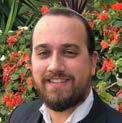 BY RABBI EZRA FRIEDMAN Director, The Gustave & Carol Jacobs Center for Kashrut Education
BY RABBI EZRA FRIEDMAN Director, The Gustave & Carol Jacobs Center for Kashrut Education
HOUSEKEEPERS AND MAIDS
Introduction to Bishul Akum
Bishul Akum: Maids and Soldiers
The prohibition
According to Biblical law, food that is completely kosher and cooked by a nonJew is permitted. However, our Sages decreed that such food, even when cooked in kosher utensils, is prohibited for consumption. This prohibition is known as bishul akum. In the coming weeks we will discuss the parameters of this rabbinic prohibition, including the reasons behind the decree, when it applies, and the practical halacha for modern industrial kashrut.
The issue of bishul akum in relation to non-Jewish employees is complex. Our Sages decreed the prohibition of bishul akum (kosher food cooked by a non-Jew) as a way of distancing Jews from non-Jews. If we were to enforce the decree only based on its reasoning, we might expect an exception for an employer-employee relationship; after all, the elements of social mingling and risk of subsequent intermarriage seem far less relevant in such a situation. However, as with all of their decrees meant to safeguard the Jewish People and the Torah, our Sages did not allow individuals to decide how and when to uphold their decree. Rather, they enacted these prohibitions “across the board” even if their underlying reasoning does not always apply to each case.
Food is a very connecting element in every society. That is the basis behind the decree of bishul akum. Our Sages were very concerned about close relationships with non-Jews since intermarriage is a very severe transgression. The prohibition effectively limits Jews and gentiles dining with each other, although there is no specific prohibition against dining with a non-Jew per se. (See Rashi on Avodah Zara 31:b.)
Forbidding the non-Jew’s cooking would be enough to create an emotional distance such that families wouldn’t marry into each other.
Rabbeinu Tam (Tosfot Avodah Zara 38:a) and Rambam (Ma’achalot Asurot 17:9)
Rabbinic authorities over the centuries have discussed possible limitations of bishul akum, with some early authorities ruling that non-Jewish slaves are not part of the decree (see Beit Yosef YD 113). The overwhelming consensus is to be stringent, based on the fact that many authorities disagree with that ruling (see Kashrut HaShulchan 3, p.93) and because the halachic status of a slave has since been abolished for hundreds of years (Pri Chadash 113:9).
maintain that the decree is based on this issue of closeness to non-Jews that could lead to intermarriage; this is the opinion of most early authorities. However, Rashi and others attribute a different reasoning to the prohibition of bishul akum, which is that non-Jews might mix non-kosher ingredients into the kosher food. In future articles we will discuss whether the parameters of bishul akum are based on both of these reasons or just one. However, it is clear from numerous sources that the danger of intermarriage is the main reason behind the prohibition (See Torat Habayit 3:7).
The decree is binding regardless of the reason
It is common in many Jewish homes, in Israel and around the world, to hire non-Jewish help for cooking and cleaning. Rema (YD 113:4) allows food cooked by non-Jewish maids or housekeepers, seemingly because there is some type of compulsion. He also cites the factors that this cooking takes place in a Jewish home and most likely a Jewish member of the household will change the temperature of the heat source. It is clear from Rema that if all three conditions are met, one may a priori hire a non-Jewish housekeeper to cook for the household. An additional reason to be lenient is because the housekeeper is an employee and the nature of the relationship is not likely to cause unacceptable mingling (see Shach YD 113:7).
THE MODERN RULING
Although this ruling seems logical, many later authorities refute the arguments and explain that this is irrelevant for modern times. There was a previous custom amongst Ashkenazi Jewry to permit non-Jewish maids to cook. However, this was based upon the fact that the coal ovens in their time required stoking to maintain the oven’s heat in order to cook food properly. In such a reality, it was common for members of the household to stoke the coals as they walked by the oven. According to Rema and Ashkenazi custom, stoking the fire is sufficient to mitigate the decree of bishul akum, even if a non-Jew is performing the entire cooking process. Nowadays, however, we no longer use coal ovens that require stoking. Electric and gas
Since the transgression of intermarriage was the primary concern behind our Sages’ decree, their goal was to powerfully discourage the possibility of developing emotional connections to non-Jews that could lead to intermarriage either in that generation or the next. Accordingly, early authorities discuss whether the prohibition of bishul akum still applies even in situations where intermarriage is not technically possible. For example, Rashba, in his responsa (1:248), examines the case of food cooked by a priest. Being that Catholic priests do not marry nor do they have children with whom to intermarry, is it permitted to eat food cooked by a priest even though the reason for bishul akum seemingly does not apply to
48 TORAH TIDBITS 1560 / SHMINI 52 TORAH TIDBITS 1516 / BAMIDBAR
OU KASHRUT PAGE
The OU Israel Gustave &
OU Kosher
the Center's
stoves do not need constant supervision, and it is not common for members of the household to adjust the fire. Based on the changes in modern cooking, later authorities maintain that Rema’s leniency is inapplicable (Kovetz Beit Halevi 5754, p.34; Responsa Shevet Kehati 6:280).

Another rebuttal mentioned by poskim is the employee status of housekeepers in modern times. In the time of Rema, the status of maids was much more compulsory; they were under contract, were very restricted, and often worked under tough conditions. In the modern era, housekeepers and maids can come and go as they please. There is no obligation to work a certain amount of time, and no binding conditions that prevent any type of freedom of employment. Since Rema assumed a minimal compulsory status for the non-Jewish household help, these later poskim insist that his lenient ruling is inapplicable in today’s reality. (Levushei Oz 113:10; Sha’arei Deah 113:2)
NON-JEWISH SOLDIERS
him? Rashba answers that we have a rule regarding rabbinic decrees: even when the reason does not apply, the prohibition still stands. This is a necessary element in every rabbinic prohibition. Otherwise, Rashba explains, people could rationalize and find reasons why any decree should not apply in their particular situation. Accordingly, Rashba concludes that even food cooked by a Catholic priest has the prohibition of bishul akum. A similar ruling is made by Ramban (Avodah Zara 35:a) regarding non-Jewish royalty who, because of their stature, are prohibited from marrying Jews. He maintains that the fact that the non-Jews are royalty is irrelevant, and that the decree of bishul akum stands regardless of the reason behind it. Taz (YD 112:1) , Shach (YD 112:4) and Pri Megadim (YD 112:1) cite these rulings as axioms of the laws of bishul akum.
Other examples
Later authorities discuss similar cases where the logic behind bishul akum may not apply. Responsa Shevet Kehati (6:273) rules that even food cooked by a non-Jewish child is considered bishul akum, despite the fact that the chances of marriage seem remote. The same is true for food cooked in a faraway country where Jews cannot travel -- bishul akum still applies.
In summary:
Our Sages prohibited food cooked by
A modern application of Rema’s ruling might be non-Jewish soldiers in the Israel Defense Forces. Although the IDF has a very high level of kashrut supervision, the situation is often more complicated in smaller army outposts. In a case where a non-Jewish soldier cooked kosher food and a Jew was not involved in the cooking process, there might be room to be lenient based on Rema’s ruling. Soldiers in the army are under compulsory service, they cannot leave at will, and all of their duties are imposed upon them. The
gentiles, even if the ingredients and utensils are kosher.
The reason cited by most authorities is the risk of intermarriage.
Even in cases with virtually no risk of intermarriage, the food is still prohibited, including non-Jewish royalty, priests, young children, and non-Jews from distant lands.
army is also certainly a predominantly Jewish army, commanded by the Jewish senior staff and Jewish government, and thus perhaps parallel to Rema’s requirement for cooking within a Jewish home. As such, perhaps there is room to be lenient in a case where a non-Jew cooked kosher food in an outpost. Nevertheless, this leniency even for soldiers is not so clear-cut, and one should consult with a competent halachic authority.
IN SUMMARY:
Kashrut Questions in Israel?
• Hundreds of years ago, it was common to hire non-Jewish help to cook and it was not considered bishul akum.
Call or Whatsapp Rabbi Friedman at 050-200-4432
• In modern times there is no room to permit non-Jewish housekeepers or maids to cook without Jewish participation.

077-2050015
052-2678749
golanechasim@gmail.com
Meir Golan
Old Katamon: 4-room apartment in a small and quiet street, 101 sqm, renovated, very bright and airy, master bedroom, Safe room (mamad), sukkah balcony, view, elevator, 3,400,000 NIS

Meir Golan
• It might be possible to be lenient if a non-Jewish soldier cooked in the army for Jews. A halachic authority should be consulted.
Old Katamon: 4-room apartment, 90 sqm, well split, bright, airy, sukkah balcony facing a magnificent panoramic view, 3 exp Shabbat elevator, parking, 3,290,000 NIS
Old Katamon sqm, elevator, RASCO: new 4 room apartment, 95m, master suite, elevator, balcony, very nice view 2,950,000 NIS
ARNONA: 4-room apartment, 90m, beautifully renovated,

RECHAVIA: 4-room apartment, 92m, Suka balcony, Shabbat elevator, fully accessible, private parking, storage 4,400,000 NIS
ARNONA: 5-room apartment, 120m, balcony, elevator, fully accessible, private parking, storage 4,350,000 NIS
DR. AARON JESIN
Canadian Physician
Over 10,000 britot!
BAKA: 5-room garden apartment, 140m, master suite, private parking, storage, full of light, airy, nice garden, 5,000,000 NIS
From Toronto, Canada, now residing in Bet Shemesh Serving Jerusalem, the Mercaz, and all places between!
OLD KATAMON: Spacious new 5-room penthouse, 155m, terrace, great panoramic view, underfloor heating, Shabat elevator, 2 parking, + rental unit, 8,900,000 NIS
תמישרב
FOR RENT: BAKA: nice 4-room apartment, 82m, beautifully renovated, master suite, air conditioners, balcony, 2nd floor, elevator - fully accessible, storage, 8,000 NIS

www.DrJesin.com | 052-399-4313
OU ISRAEL CENTER 49 OU ISRAEL CENTER 53
Carol Jacobs Center for Kashrut Education was created to raise awareness and educate the public in all areas of kashrut. Rabbi Ezra Friedman, Deputy Rabbinic Administrator for
Israel is
director.
ךמסומ להומ לארשיל תישאר תונבר

SIMCHAT SHMUEL
BY RABBI SAM SHOR Program Director, OU Israel Center
Our Sedra contains the challenging account of the passing of Nadav and Avihu, two sons of Aharon, who ambitiously brought an offering unto Hashem, which they were not instructed to bring, and subsequently are struck down by fire, and pass away.
ונתיו ותתחמ שיא אוהיבאו בדנ ןֹרהא־ינב וחקיו שא ’ה ינפל ובירקיו תרטק הילע ומישיו שא ןהב לכאֹתו ’ה ינפלמ שא אצתו ׃םתא הוצ אֹ ל רׁש א הרז אוה ןֹרהא־לא הׁש מ רמאֹיו ׃’ה ינפל ותמיו םתוא ־לכ ינפ־לעו שדקא יברקב רֹמאל ׀ ’ה רבד־רׁש א ׃ןֹרהא םֹדיו דבכא םעה
And Aharon’s sons Nadav and Avihu each took his fire pan, placed fire in it, and laid incense on it; and they offered before Hashem a foreign fire, which had not been instructed to them. And fire came forth from Hashem and consumed them; thus they died before Hashem. Then Moshe said to Aharon, “This is what Hashem said: Through those who are close to Me, I shall be sanctified and gain glory before all the people.” And Aharon was silent...
How do we begin to understand Moshe Rabbeinu’s words to his brother, words which at first glance seem lacking any sentiment of compassion or comfort. How are we to understand Aharon’s reaction to Moshe’s words? Was Aharon’s silence, and lack of crying out in anguish, simply the result of shock, or is there a deeper message to be learned from Aharon’s reaction to the loss of his two sons? What is the significance of Hashem’s words-B’krovai Ekadeish-Through those who are close to me, I shall be sanctified?
According to the Rashbam, the words
ןרהא םודיו, and Aharon was silent, are to be understood as a powerful expression of utter faith. Upon hearing that his sons were taken because they were close to Hashem- Bekrovai Ekadeish, Aharon remained silent, he did not express any sadness, he did not weep and did not perform any aspects of mourning. The knowledge that their passing somehow connoted that they were considered by Hashem to be close, and that their passing was somehow meant to sanctify Hashem’s name, was seemingly enough for Aharon to refrain from any expression of sadness.
During these past many difficult months, there have been many instances of incredible courage, and incredible faith, of Kiddush Hashem in the shadow of much darkness and sadness. I recently re- read a powerful story told by the great rabbinic personality Rav Ephraim Oshry zt’l, known for his remarkable halachic responsa- Teshuvot Mimaamakim- Responsa from the Depths. Rav Oshry, who survived the Kovno ghetto, and settled on the Lower East Side in New York City, where he served as Mara D’Atra of Beis Medrash HaGadol, became renowned for his responsa both in the midst of the Holocaust, as well as in the years immediately following the Holocaust, answering countless difficult halachic issues with insight and sensitivity. Rav Oshry shared this poignant story about his wife’s illustrious grandfather, HaRav Asher Greensweig, Hy’d,zy’a.
Harav Asher Zelig Greensweig, Hy”d, zy’a, was the Mara D’Atra of the Romanian
50 TORAH TIDBITS 1560 / SHMINI
town of Dalha, who became known by the name of his sefer, Beit Asher. He was a devoted talmid of the Yetev Lev, Harav Yekutiel Yehudah Teitelbaum, zy”a. Rav Asher always kept a special bekeshe with him at all times, which he hoped to quickly don to greet at any moment, Moshiach Tzidkeinu. When he and the Jews of Dahla were awaiting deportation to Auschwitz, the Rav emerged wearing his ‘Moshiach Bekeshe’. As his family and community looked on and wept, the Tzadik Rav Asher, turned to them and said: “ Now is not a time for sadness or to weep. Each and every mitzva much be fulfilled b’simcha, even the mitzva of giving one’s life al Kiddush Hashem...”
Aharon’s silence is not to be misinterpreted as lacking emotion for the loss of his two sons. Rather, it must be seen as an acknowledgment of the ratzon Hashem, and that even in this tragic circumstance, Aharon finds the strength to move forward and to continue to be Mikadeish Sheim Shamayim, through his sacred work in the Mishkan on behalf of Klal Yisrael.
Yehi Ratzon, may we be blessed to serve Hashem at all times b’simcha, and may we merit to sanctify Hashem’s name only through our actions and accomplishments, and not through tragedy and sadness.
Former Assist. Clinical Professor of Medicine, UCLA School of Medicine; Div. of Endocrinology & Metabolism Weight

LIFE SETTLEMENTS
Do you have a life insurance policy you:
• No longer want?
• No longer need?
• Can no longer afford the premium?
• Could you use extra money instead of keeping your policy?
I can guarantee that if you qualify with the underwriting process I can get you more money than if you cash it in with the company.



OU ISRAEL CENTER 51
Specializing in Arthritis and Osteoporosis ZOOM CONSULTATIONS AVAILABLE
Dr.
Harry Weisman
loss Consultation +972
of The 18% Solution –Lose 18% of Your weight in 18 Weeks
53 472 2159 Author
 BY RABBI MOSHE TARAGIN R am, Yeshivat Har Etzion
BY RABBI MOSHE TARAGIN R am, Yeshivat Har Etzion
The Power and the Glory.. of Life in Israel
The long-awaited day had finally arrived. After collecting building materials, weaving priestly clothing, and crafting the various components of the Mishkan, the grand project of building a house for Hashem was completed. Evidently, our prayers for forgiveness after the egel fiasco were accepted. Hashem agreed to settle His presence in a wooden and goldplated house which we had fashioned. The great love between Hashem and His chosen people had survived the horrific egel debacle.
Until the fire descended from heaven however, no one was certain that Hashem also desired our korbanot. Perhaps He had forgiven us, but only half-way. Perhaps He was willing to visit our Mishkan but not prepared to accept our sacrifices. Once the heavenly fire descended and consumed the korbanot it became evident that our relationship with Hashem had undergone a full restart.
Suddenly, tragedy struck. Two children of Aharon deviated from Mishkan protocol, and a second more ominous fire descended from heaven, this time incinerating Nadav and Avihu. A day which had been slated for celebration and vindication transformed into a dark and sorrowful day of tragedy. Our national excitement was washed away in grief and misery.
What was so terrible about the sin of
Aharon’s two sons? What possible crime warranted such severe divine retribution, especially on this triumphant day. Given the blissful occasion, perhaps Aharon’s children should have been pardoned or at least should have received clemency. What were they guilty of?
TOO COMFORTABLE?
There are differing accounts as to the exact nature of their sin. From the Torah ‘s description it appears that Nadav and Avihu offered a personal blend of ketoret which hadn’t been authorized or, as the Torah refers to it, an שא הרז . Certainly, unlicensed ketoret is an offense, but why did it elicit such a harsh repercussion?
Chazal assumed that there were additional crimes, aside from the unsanctioned ketoret. According to one version Aharon’s sons entered the Mishkan while slightly inebriated. Even a minimal amount of intoxication is forbidden when entering the Mishkan. A different opinion in Chazal suggests that the “additional” crime of Aharon’s two sons was their hastiness in issuing a halachic ruling in the presence of Moshe Rabeinu. Instead of deferring to a higher authority, they usurped Moshe’s title, and for this impudence they were punished.
These three crimes – unauthorized ketoret, inebriation, and usurping Moshe’s authority share one common denominator: none of
52 TORAH TIDBITS 1560 / SHMINI
YISRAEL
GEULAS
YISRAEL
them is sinister or wicked. They can all be considered misdemeanors or minor offenses, especially given the “spirit of the day”. It was reasonable to assume that a day this festive, would invite special korbanot, in addition to the standard fare. It was reasonable to imagine that moderate drinking could enhance the liveliness and joviality of the religious celebration. It was reasonable to assume that, on this day, hierarchies could be temporarily suspended, and that younger Torah scholars could enthusiastically “cut the line” and answer Torah questions. The opening day of the Mishkan was a once-in-history event and slight deviations should be tolerated, or at least, shouldn’t be “excessively” punished. The crimes of Nadav and Avihu, even if taken together, seem mild and don’t appear to justify the severe punishment they suffered.
EDUCATIONAL, NOT PUNITIVE
Evidently, their death wasn’t just a punishment, but also was a lesson. On a day when humans could, potentially, feel too close to Hashem, when a human-crafted edifice began to lodge the infinite D ivine presence, Hashem’s unknowability and unfathomability could, potentially be compromised. On this day of celebration, the distance between Hashem and Man had to be accentuated. When standing in the presence of “the Other” you don’t freelance, you don’t drink, and you certainly don’t break protocol.
The death of Nadav and Avihu wasn’t solely punitive, it was also instructive, teaching us a lesson about proper boundaries between Hashem and Man. As Moshe Rabeinu instructs Aharon after the tragedy: שדקא יבורקב
The tragic deaths of Nadav and Avihu strengthened Hashem’s kedusha, reaffirmed His transcendence and reinforced

077-2050015
052-2678749
golanechasim@gmail.com
Meir Golan
Old Katamon: 4-room apartment in a small and quiet street, 101 sqm, renovated, very bright and airy, master bedroom, Safe room (mamad), sukkah balcony, view, elevator, 3,400,000 NIS

Meir Golan
RASCO: new 4 room apartment, 95m, master suite, elevator, balcony, very nice view 2,950,000 NIS
ARNONA: 4-room apartment, 108m, master suite, balcony, storage, Shabbat elevator, private parking, 3,290,000 NIS
Old Katamon: 4-room apartment, 90 sqm, well split, bright, airy, sukkah balcony facing a magnificent panoramic view, 3 exp Shabbat elevator, parking, 3,290,000 NIS
ARNONA: 4-room apartment, 90m, beautifully renovated, master suite, balcony, storage, Shabbat elevator, private parking 3,250,000 NIS
Old Katamon: Spacious 3-room apartment in a very quiet street, 75 sqm, sukkah balcony facing a green and pastoral view, 3 exp. Shabbat elevator, private parking, storeroom, 2,690,000 NIS
BAKA: New 4 room apartment in a new building, 101m, master suite, storage, Shabbat elevator, private parking, Sukkah balcony in process of being added, 3,890,000 NIS
BAKA: New 4 room apartment in a new building, 88m, master suite, storage, Shabbat elevator, private parking, 3,950,000 NIS
OLD KATAMON: 5-room garden apartment, 125m, large garden + separate unit for rent or for guests, balcony, storage, 5,190,000 NIS
RECHAVIA: 4-room apartment, 92m, Suka balcony, Shabbat elevator, fully accessible, private parking, storage 4,400,000 NIS
REHAVIA: New garden apartment, 98m, garden, 50m, full accessibility, private parking, 5,390,000 NIS
ARNONA: 5-room apartment, 120m, balcony, elevator, fully accessible, private parking, storage 4,350,000 NIS
BAKA: 5-room garden apartment, 140m, master suite private parking, storage, full of light, nice garden, 6,000,000 NIS
SHAAREI CHESED (RECHAVIA): 4-room apartment, 123m, balcony, extraordinary view, Shabbat elevator, fully accessible, private parking, 5,590,000 NIS
OLD KATAMON: Spacious new 5-room apartment, 140m, terrace, underfloor heating, Shabbat elevator, 2 parking, 6,300,000 NIS
NORTH TALPIOT (CASPI STREET): New garden apartment, 5.5 rooms, 165m, 80m garden, architecturally renovated, underfloor heating, central air conditioning, parking, 5,890,000 NIS
KIRYAT SHMUEL: New penthouse, 230m, full accessibility, private parking 13,290,000 NIS
FOR RENT:BAKA: nice 4-room apartment, 82m, beautifully renovated, master suite, air conditioners, balcony, second floor, elevator - fully accessible, storage, 8,000 NIS
His incomprehensibility.
Had these sins occurred somewhere else they would not have warranted such a harsh response. Had these deviances occurred on a different day, perhaps the heavenly response would not have been so radical. Since, however, these misdemeanors occurred on a day on which Hashem’s transcendence may have been diminished and, additionally, the crimes occurred in the presence of Hashem in the Mishkan, they could not be overlooked.
Such is the steep price of standing before Hashem. The closer you live to Him the more delicate the relationship, the greater care must be taken, and the less margin of error exists.
Hundreds of years later the same harsh lesson was handed down a second time. During the early stages of Dovid Hamelech’s reign, after a twenty-year sojourn outside of
OU ISRAEL CENTER 53
Yerushalayim, the Aron Hakodesh was joyously paraded back to the capital city. During the jubilant procession the Aron slipped from the wagon. Attempting to prevent it from falling, one of the caretakers named “Uzza” illegally clutched it with his bare hands. Uzza made an honest and innocent mistake, assuming that the Aron regulations could be violated to prevent it from falling. He was immediately killed and, once again, the gala day of celebration turned sorrowful. Like the two sons of Aharon, Uzza’s crimes didn’t warrant such stern punishment. Once again, the fatal outcome was educational and not merely punitive. The festive parade of the Aron threatened to diminish the distance between Hashem and the revelers. Too much giddiness and too much merriment may have diminished reverence and gravitas. On this day, even a slight miscue, such as touching the Aron Hakodesh elicited a severe response. Living in close precincts to Hashem leaves little margin for error.
THE GLORY AND THE FEAR
Living close to Hashem is frightening but also glorious. Sadly, some are so gripped with terror and fear of consequences that they cannot perceive the grandeur of living Hashem’s presence. Because he was petrified of the potential consequences of this lifestyle, Esav bartered his rights to the first born. As he himself announced
הרוכב יל הז המלו תומל ךלוה יכנא הנה Chazal infer that Esav was concerned that a life in the Mikdash would be deadly. One minor slip-up and the consequences would be dire. Paralyzed by fear, Esav could not appreciate the glory of a life of mission. He couldn’t see beyond the consequences and appreciate the splendor. Life before Hashem
sometimes comes at a steep price, but that life is meaningful and momentous.
CRISIS IN ISRAEL
Over the past few months, we have all discovered the steep price of living closer to Hashem. We don’t know why this dreadful tragedy struck our people and our Land, but we do know that, along with the privilege of living in Israel comes a massive responsibility to live up to the standards of a life before Hashem. For thousands of years, we didn’t live in Hashem’s direct presence and our margin for error was greater. Now that we are back in His presence our relationship is more delicate and our mistakes more critical. We are starting to appreciate the grave responsibility of living in the Land of Hashem. We certainly don’t know what caused this tragedy, but we realize that, in Israel, our relationship is more fragile and the impact of our behavior more fateful.
Some view this price as too steep and prefer to live outside of Israel and far away from the awesome responsibilities and consequences of this privilege. That is an “Esav” attitude. We finally have the opportunity to live near Hashem and we dare not shrink in fear. Esav was obsessed with dread, we are enchanted by the glory.
We have all suffered through tragedy, anxiety, and sadness over the past few months. However, every Israeli will concede that this period has been the most meaningful six months of their lives. Every Israeli will acknowledge that, despite the hardships, they can’t imagine living elsewhere during this period. Living before Hashem in His Land makes our everyday lives meaningful, purposeful, and historically resonant. We hope
54 TORAH TIDBITS 1560 / SHMINI

Rabbi Taragin’s new book about the war in Israel ‘Dark Clouds Above, Faith Below’ in bookstores, or at: https://www.amazon.com/dp/ B0CZ7N8ZJB or: https://kodeshpress.com/product/ dark-clouds-above-faith-below/



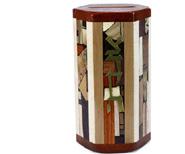
www.etz-ron.com

**SALE! BEST INVESTMENT! Old Katamon, Bruryah St. 3.5 beds, 85 sqm + 30 sqm balconies, 1st floor. The property in an advanced Tama procss for a 4 bed apt Asking price: 4,150,000 ₪
**SALE! Rechavia, KKL St. exclusive complex. 89 sqm. 2 beds apt. Including indoor pool, and 24 hr security. Parking and storage. 3,850,000 ₪
**SALE! PRICE DROP! Rechavia, Diskin St. 130 sqm. 3 beds + 2.5 baths + private parking. Facing city view. Needs renovation. 5,600,000 ₪
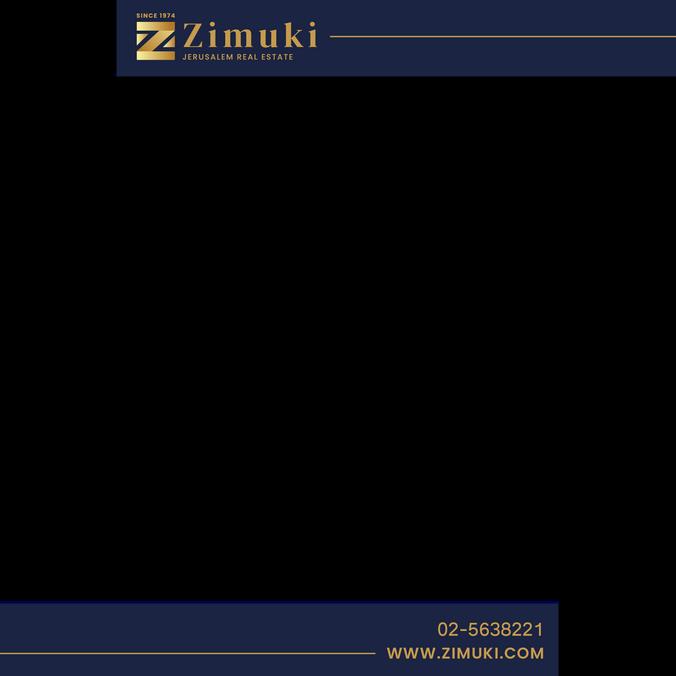
**SALE! City Center, Biankini St. New apt. in a new building. 60 sqm, 2 beds, balcony + MAMAD + AC + private parking + Shabat elevator. 2,720,000 ₪
**RENTAL! Talbiyeh, 130 sqm penthouse. 3.5-beds, F/F, large terrace, private parking + storage. 13,000 ₪

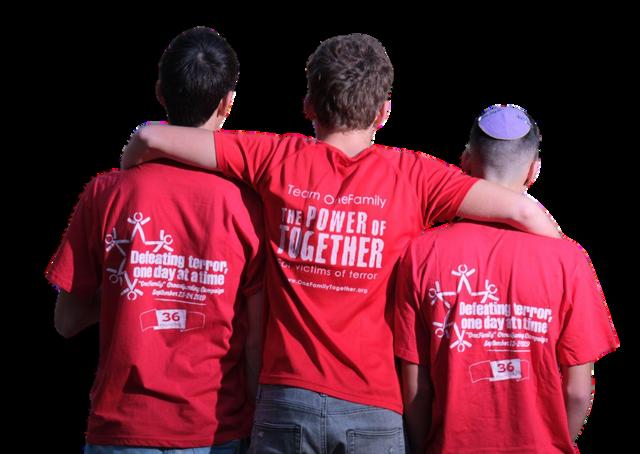

OU ISRAEL CENTER 55 W L O N E F A M I L Y P I C K S U P T H E P I E C E S P r o v i d i n g S u p p o r t t o 5 0 0 T e r r o r V i c t i m F a m i l i e s Family is the circle of people we know we can count on to be there when we need it most. We are a support system of people and resources to empower terror victims to heal, recover, renew their lease on life, and flourish. OneFamily – helping “Our Collective Family” achieve emotional and economic independence W W W . O N E F A M I L Y T O G E T H E R . O R G I N F O @ O N E F A M I L Y F U N D . O R G
הרתסהה ךותמ הנומא הרתסהה ךותמ הנומא Dark Clouds Above, Faith Below ark Clouds Above, Faith Below Rabbi Moshe Taragin Rabbi Moshe Taragin the nightmarish horrors of October descended upon us, and our faith pages the past we peer deeply into but we know how ends. One day we Discover Beautiful Wooden Judaica
we never again have to pay the price for that privilege. But let’s not forget the privilege and let’s not forget the glory.
Ruth Abrahami - 054-8070677

INSIGHTS
Gateways to Growth
PARSHAT HACHODESH
YECHEZKEL 45
־ךרד אבה םידעומב ’ה ינפל ץראה־םע אֹובבו אבהו בגנ רעׁש ־ךרד אצי תֹוחתׁש הל ןֹופצ רעׁש ךרד בושי אֹ ל הנופצ רעׁש ךרד אצי בגנ רעׁש ךרד ׃]אצי[ ואצי וחכנ יכ וב אב־רׁש א רעּׁש ה
On the fixed occasions, when the common people come before Hashem, whoever enters by the north gate to bow shall leave by the south gate; and whoever enters by the south gate shall leave by the north gate. They shall not go back through the gate by which they came in, but shall go out by the opposite one.
The pasuk from Ezekiel 45:16 outlines a specific protocol for those entering and exiting the Beit HaMikdash. It describes a practice where individuals entering through one gate must exit through the opposite gate. What was the purpose of walking in this unique path rather than using the same route? This seemingly straightforward instruction carries deeper significance, inviting reflection on the nature of routine and mindfulness in our lives.
Rav Chaim Shmulevitz explains that this practice serves as a reminder of the tendency to become complacent amidst repetitive actions. By altering the path of entry and exit, individuals are prompted to engage with each moment consciously, fostering a sense
BY REBBETZIN DR. ADINA SHMIDMAN

of awareness and gratitude for the blessings present in everyday life.
In contemplating the wisdom behind this practice, it becomes apparent that routines can often dull our appreciation for the nuances of existence. The monotony of daily life may obscure the beauty and opportunities that surround us. Through the intentional deviation from the familiar, we are urged to approach each experience with renewed vigor and attentiveness. By embracing change and actively seeking mindfulness, we unlock the potential for growth and discovery in our lives.
As we navigate through times of hardship and transition, such as the aftermath of significant events like October 7th, it is natural to feel stagnated and overwhelmed. The disruption of routines and the weight of loss may cast a shadow over our ability to move forward. Yet, within these moments lies an opportunity for introspection and renewal. Just as individuals in the passage are directed to exit through a different gate, we too can choose to navigate life’s challenges with resilience and adaptability.
Ultimately, the lesson from Ezekiel’s passage transcends its historical context, offering timeless wisdom for navigating the ebb and flow of existence. It reminds us that life’s journey is not meant to be traversed passively but rather embraced with intention and mindfulness. By embracing change, cultivating gratitude, and remaining open to new experiences, we unlock the transformative power of each moment, paving the way for personal growth and fulfillment.
56 TORAH TIDBITS 1560 / SHMINI HAFTORAH


OU ISRAEL CENTER 57

RABBI AARON GOLDSCHEIDER
EDITOR, TORAH TIDBITS
EDITOR, TORAH TIDBITS RAV, THE JERUSALEM SHUL - BAKA, JERUSALEM
Be Bold
For seven days, the inauguration of the Mishkan has been celebrated. Now, finally, on the eighth day, Aharon is to assume his honored position as kohen gadol, high priest of his people. At the very moment he is about to ascend the altar for the very first time, according to the Midrash, Aharon stops in his tracks, so Moshe turns to him and says, “Approach the altar” (Leviticus 9:7).1 What causes Aharon to freeze up?
The Ravad surmised that as Aharon readied himself to ascend the altar, its corner protuberances reminded him of animal horns, and the associative workings of the mind brought him back to the terrible sin of the golden calf, which he had a hand in producing.2 The sin must have weighed heavily on him. A century or so later, Rabbi Yitzchak b. Yehudah ha-Levi in his Pane’ach Raza recorded a hint to this in the Torah itself. He observed that the letter kuf that begins Moshe’s command to Aharon of “approach” )ברק(, is topped with tagin, the scribal flourish
of crownlets. This is the only place in the Torah that a kuf is so crowned. These represent the horns that stood out in Aharon’s thoughts, reminding him of the calf and, by extension, of his sin.3 According to these medieval authorities, Aharon was paralyzed by self-doubt and could not move until Moshe ordered him to carry on.
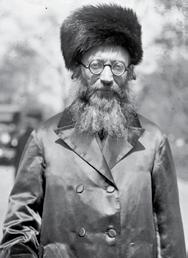
Perhaps Aharon’s state of mind dictated the kind of sacrifice to be brought. He was commanded to offer a very specific calf, an egel ben bakar (Leviticus 9:2). Rabbi Shimshon Raphael Hirsch explained that according to the Talmud this was a two-year-old calf—neither an egel, a baby calf in its first year, nor a par, a threeyear-old bull. In this intermediate stage, the animal is in the process of maturing but is not quite there yet.4 One can suggest that it was crucial at this juncture, as Aharon was transitioning into a full-time servant of God, that he sacrifice an animal that was, in one respect, neither here nor there. He had to be all in and offer up any misgivings to God.
1. Torat Kohanim, Milu’im, Shemini, 1:8, cited by Rashi on Leviticus 9:7.
2. Ravad’s commentary on Torat Kohanim is cited by Ramban on Leviticus 9:7.
In his path breaking Orot ha-Teshuvah, Rav Avraham Yitzchak Hakohen Kook detailed the emotional and psychological aspects of sin and the process of repentance. To repent requires recalling past misdeeds
3. Pane’ach Raza on Leviticus 9:7.
4. Rabbi Hirsch on Leviticus 9:2.
58 TORAH TIDBITS 1560 / SHMINI
and resolving not to repeat them. Although remembering our unfortunate missteps can be demoralizing, “despair itself should encourage a person not to fear and to repent from every sin, full of tranquility and spiritual courage.”5 As we saw with Aharon, however, this is not always possible. Sometimes an egregious or shameful sin hovers around us like an albatross, and we cannot make any progress. For such cases, Rav Kook offered an alternative path:
הבושת לׁש ו הארי לׁש תֹובׁש חמ ול תֹואב רׁש אכ ןנוכתתש דע םהמ ֹו תעד חיסי ןֹובצע ךרדב לׁש ו הּׁש דק לׁש ןכתה לֹכ וילע לבקיו ,ֹותבׁש חמ .החמשו הודח ךרדב םימׁש תארי
When thoughts of fear and repentance arise out of sadness, one should avert his attention from them until he can gain hold of his consciousness, and accept on himself the entire complement of holiness and fear of Heaven with delight and happiness.6
If a person will be overwhelmed by sadness, anxiety, or despair, it is better to turn joy and positivity into the emotional vehicle for repentance.
Returning to Parashat Shemini, in the words of the Ramban, Moshe said to his brother: “Be bold so that you are not so despondent; God has already forgiven you.”7 Moshe communicates to us that we need to move forward and not tread water, otherwise we will be spiritually lost.
Rav Kook emphasized that we must never allow ourselves to be overpowered by disheartening feelings of regret. On the contrary, we need to overpower such sentiments with bold optimism, wholesome
5. Orot ha-Teshuvah, 8:15.
6. Ibid., 14:11.
7. Ramban on Leviticus 9:7.
היכוב
FOR THESE I WEEP…
Announcing an Inspirational Jewish Experience to Poland with Rabbi Dr. Aaron Adler
Tuesday, July 16th – Monday, July 22nd, 2024 (Seven days; Six hotel nights)
Visit: Warsaw, Tarnow, Lublin, Majdanek, Auschwitz, Plashow, Lezajsk, Lancut, Markowa, Tarnow and more… Plus a meaningful Shabbat in Krakow
For more Information: Call: 050 7733117
Email: aaron.adler50@gmail.com
All-inclusive price – including El Al (Sundor) flights - $2250
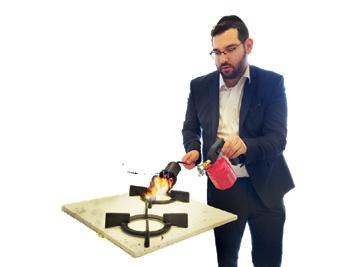
026431427
self-confidence, and robust courage. Ultimately, Aharon did just that. He stepped up to the altar, offered blessings, and brought God’s presence upon himself and the entire nation. The key to his success lay in Moshe’s encouragement: “Be bold.”
Rabbi Goldscheider is the author of the newly published book ‘Torah United’ (OU Press), featuring divrei Torah on the weekly parasha from Rav Kook, Rabbi Solovetichik, and the Chassidic Masters.
OU ISRAEL CENTER 59
year
kitchen kashering
Pesach &
round
הלא
ינא
לע


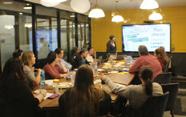
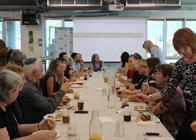
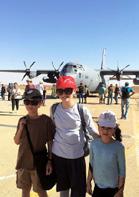


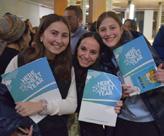
www.theisraelcalendar.org
an event? Post your events on the calendar and share your program with the expansive Nefesh B'Nefesh community all over Israel. Visit The Nefesh B'Nefesh Israel Calendar to explore English-language events taking place all over the country!
Israel Calendar is an
platform
and in-person
events
are designed for Olim
while benefiting
events. Translation Tuesdays Don't let Hebrew get in your way! Bills ToDo: Forms Translation Tuesdays goes beyond basic translations. Our dedicated NBN staff offer one-on-one assistance to help you navigate and understand any challenging Hebrew task. WWW.NBN.ORG.IL/TRANSLATIONS
Hosting
The
online
showcasing virtual
English-speaking programming throughout the country. All
posted on the calendar
seeking to connect with like-minded Anglos
from English-oriented


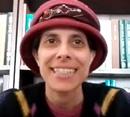

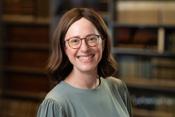

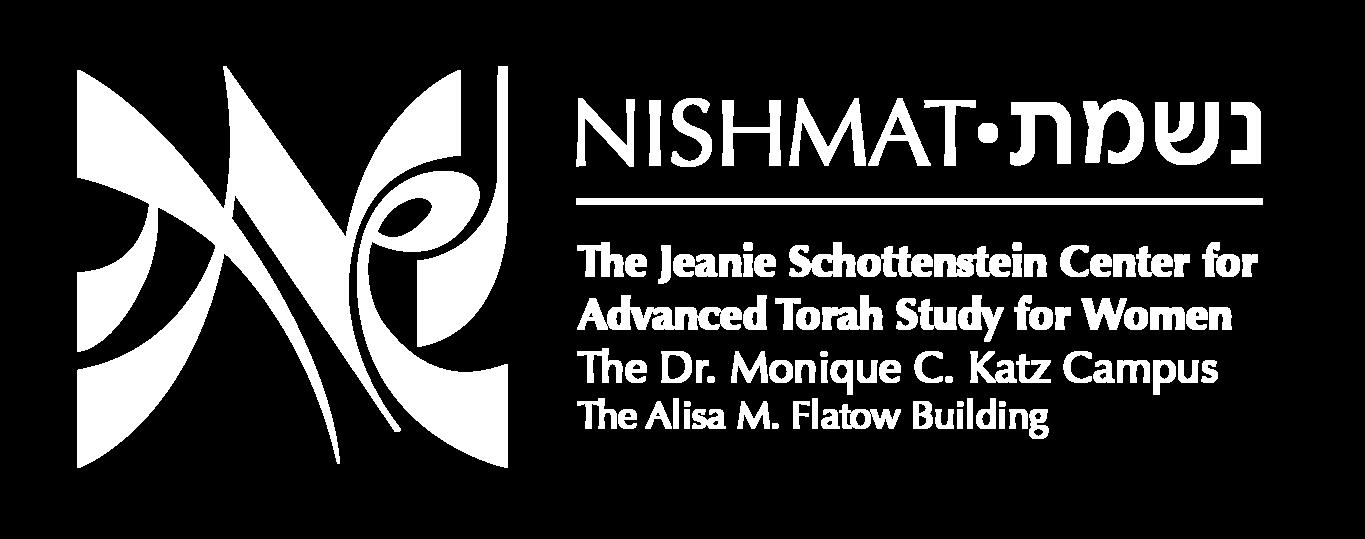


A l i s a F l a t o w P r o g r a m s April 14, 2024 6 Nissan 5784 OUR SPEAKERS Slavery and Oppression: What was the Divine Plan On the Path to Redemption, Do we Lead or Follow? What You Would Like to Know About PesachQ & A Leaning into Acts of Derech Cherut RABBANIT NEIMA NOVETSKY RABBANIT NAVIT TZADIK RAV DA’VID SPERLING RABBANIT ATARA EIS D E D I C A T E D I N M E M O R Y O F M O L L Y S H E R M A N Z ” L B Y H E R L O V I N G F A M I L Y F r e e a d m i s s i o n M e n a n d w o m e n w e l c o m e C l a s s e s w i l l b e r e c o r d e d a n d a v a i l a b l e o n l i n e L i g h t r e f r e s h m e n t s w i l l b e s e r v e d 9:00 AM-10:00 AM 10:15 AM-11:15 AM 11:30 AM-12:30 PM 12:45 PM- 1:30 PM Nishmat’s Esther Kryss Beit Midrash Berl Locker St. 26a, Jerusalem For more information: office@nishmat.net Pre-Register at https://nishmat.net/programs/yom-iyun-2024/ Walk-ins also welcome Hagaddah
ongoing during the Yom Iyun SAVE JTHEDATE: uly4-25
Sale

ERETZ HEMDAH ASK THE RABBI SERVICE
FROM THE VIRTUAL DESK OF THE OU VEBBE REBBE
RAV DANIEL MANN
RAV DANIEL MANN
Moral Culpability for Unintentional Actions on Shabbat
תמשנ יוליעל
ל"ז ןמצלז לאיזוע םהרבא ןב םירפא לאוי
Question: My coordination, balance, and eyesight have deteriorated. Despite my best efforts, not infrequently on Shabbat I bump into and move muktzeh items in my small apartment. Are my accidental movements of muktzeh violations of Shabbat? If they are, I wonder about the following sad scene. A person who passionately kept Shabbat all his life suffers a fatal heart attack on Shabbat and, in the process, falls and breaks something. Was his last action a desecration of Shabbat?
Answer: We wish you good and improved health and suggest contemplating happier things. Regarding these questions, halacha is totally “on your side” for several reasons. We take the opportunity to investigate various categories of unintentional “violations” in general terms.
Even if one purposely moves a muktzeh object with parts of the body people do not usually use to move things (i.e., everything but the hands), most say that the standard (Rabbinic) prohibitions of muktzeh, such as moving something to protect it, do not apply (Shulchan Aruch, Orach Chayim 311:8; Mishna Berura 311:30). Although some are stringent if one directly moves
muktzeh with any part of the body, especially for no good reason (see Chazon Ish, OC 47:12; Dirshu 311:33), all agree there is no problem if one incidentally moves it as he walks (Chazon Ish ibid.).
Let us now imagine one accidentally banging into something that activates a Shabbat violation. Did he mistakenly violate Shabbat? The most severe category of unintentional Shabbat violation is shogeg – one intends to, for example, light a candle, just that he forgot it was Shabbat or that lighting a candle is forbidden on Shabbat. This person requires the atonement of a korban chatot (sometimes multiple korbanot – see Rambam, Shegagot 7:2-4).
A significantly lower level of blame exists regarding cases of mitasek – a person who did not intend to do the forbidden action/ result. This comes in different forms. A) He did not mean to do the action that ended up; B) He intended to do the action to an object in a manner that would have been permitted. Mitasek is exempt from a korban in various prohibitions, except those involving physical enjoyment (Kritot 19b). There is an additional level of exemption for Shabbat (melechet machashevet – one planned to do the melacha, but it came out differently than planned (Rambam, Shabbat 1:9)).
62 TORAH TIDBITS 1560 / SHMINI
Eretz Hemdah, the Institute for Advanced Jewish Studies,
by Rav Yosef Carmel and Rav Moshe Ehrenreich, founded by Rav Shaul Yisraeli, zt”l, to prepare rabbanim and dayanim to serve the National Religious community
the Israel and abroad. Ask the Rabbi is a joint venture of the OU, Eretz Hemdah, and OU Israel’s Torah Tidbits.

Rabbi Akiva Eiger (Shut I:8) posits that there is a qualitative difference between the exemption of mitasek for Shabbat as opposed to other non-enjoyment prohibitions. Regarding the latter, there is a violation, just that it is insufficient to obligate a korban. One ramification is that if one is aware that his friend is about to violate one of these aveirot as a mitasek, he must act to stop the violation. However, a mitasek does not violate Shabbat and a friend does not have to stop him (at least from the fundamental, Torahlevel perspective). The Oneg Yom Tov (20) assumes that even a mitasek of Shabbat is considered violating Shabbat and needs to be told to stop. Some level of regret also explains the halacha that one should check his pockets before Shabbat to make sure he does not have muktzeh and/or will not carry in a place that does not have an eiruv (Shabbat 12a).
The above, though, is likely when one has some idea of what he is doing, even if not all the details. After all, if one is planning to do permitted action A and knows that

unintended forbidden result B might possibly occur, he may do action A because of “davar she’eino mitkaven.” It cannot be that after acting with permission, if it came out that result B occurred, that he needs to have regrets for what he did, given that the rabbis knew it was likely and still permitted it (see He’arot of Rav Elyashiv, Ketubot 5b). Since we would definitely let a wobbly person walk in a crowded room, we will not say he violated Shabbat by banging into something.
In the sad case of the heart attack, it is not even considered that he did an action. When someone falls down, it is gravity that is acting upon him (see Tosafot, Sanhedrin 74b).


OU ISRAEL CENTER 63 Having a dispute? For a Din Torah in English or Hebrew contact: Eretz Hemdah - Gazit Rabbinical Court 077-215-8-215 • Fax: (02) 537-9626 beitdin@eretzhemdah.org
headed
in
Jerusalem, is

TORAH VEHA'ARETZ INSTITUTE
BY RABBI MOSHE BLOOM en.toraland.org.il

Swords of Iron War Responsa #1: Separating Terumot & Ma’aserot With an Abridged Text
Question:
I am in active duty without access to a phone or siddur and I want to separate terumot and ma’aserot from fruit I received. Am I allowed to use the abridged text?
Answer:
The Chazon Ish writes (Demay 15:6) that someone who is on the road and does not have access to the written text and is not knowledgeable with the procedure for separating terumot and ma’aserot should set aside a bit more than 1% of the produce. Then they should say that the separations should all apply just as it is written properly in the text in one’s possession, and this is effective. Many Acharonim cite this ruling.
The Chazon Ish supports his innovation with proof from the laws of testimony, Sanhedrin 60a: if witnesses come to testify and one says a full testimony, the second can subsequently affirm, “I [testify] likewise.”

This testimony is valid for civil law (dinei mamonot) and capital law (dinei nefashot) and is considered as if the full content of the testimony was stated. He extends this concept to terumot and ma’aserot; the full text is available in a siddur, so one may say that the formula will apply as written there.
Rabbi Tzvi Pesach Frank (Har Tzvi Zera’im 1:48), however, completely rejects the Chazon Ish’s suggestion. He argues that the act of saying the formula for the separation of terumot and ma’aserot inherently creates a designation – both prohibitive and financial. It follows, therefore, that a clear and explicit statement is crucial for the separation to prove effective. A designation cannot be established without saying the full text of the separation. This is in contrast to the laws of testimony, where one witness can state the full testimony and another witness can rely on it. Thus, Rabbi Frank maintains that separating terumot and ma’aserot employing the Chazon Ish’s solution is not acceptable even bedi’avad.
PRACTICAL GUIDELINES
• It is best to learn the text to understand the procedure for separating terumot
64 TORAH TIDBITS 1560 / SHMINI
and ma’aserot. Guidelines are available on our website: en.toraland.org.il.
• Lechatchilah, say the full text.
• In extenuating circumstances, when one does not have access to the text – such as soldiers in Gaza, set aside a little more than 1% and say “the separations should apply as written in my siddur at home.” Also say that the ma’aser sheni sanctity is transferred to a designated coin at home. Note that for the duration of the war, Torah VeHa’aretz Institute provides free membership to soldiers to Beit Ha’otzar our ma’aser fund and designate coins on their behalf for this purpose.
• Torah VeHa’aretz Institute published a pocket-sized edition of the separation formula. It can be distributed by brigade rabbis to religious soldiers for them to stick it in their vests.
EX-FLORIDIANS
Listen to "Shalom South Florida" every Sunday 16:30-18:00
on www.ShalomSouthFlorida.com

valid thru Sunday, April 21, 2024
Dorot Rishonim #3, Jerusalem
Tel: 02 563-7155
Website: SherlockSHats.com
HELPING THE HOME FRONT ASSISTING THE NEEDY

THIS WEEK: “Kimcha DePischa”
It’s never too early to provide provisions for the needy for Pesach
See What We Do and to Donate:
www.Yeshezra.org
Bank transfer: Mercantile (17), Branch 642, A/C 79747843
Send Asmachta for tax receipt
Checks: “Yesh Ezra,” POB 31476, Romema, Jerusalem
Credit Card: Sara – 077-820-0196.
Sun/Mon/Wed (10:15am-2.45 pm)
Inquiries: Menachem Persoff
050-570-1067 | menpmp@gmail.com
OU ISRAEL CENTER 65
MAXI BoX 053-7272-815 ד״סב Storage Your place for extra space
20% off all winter hats
sale
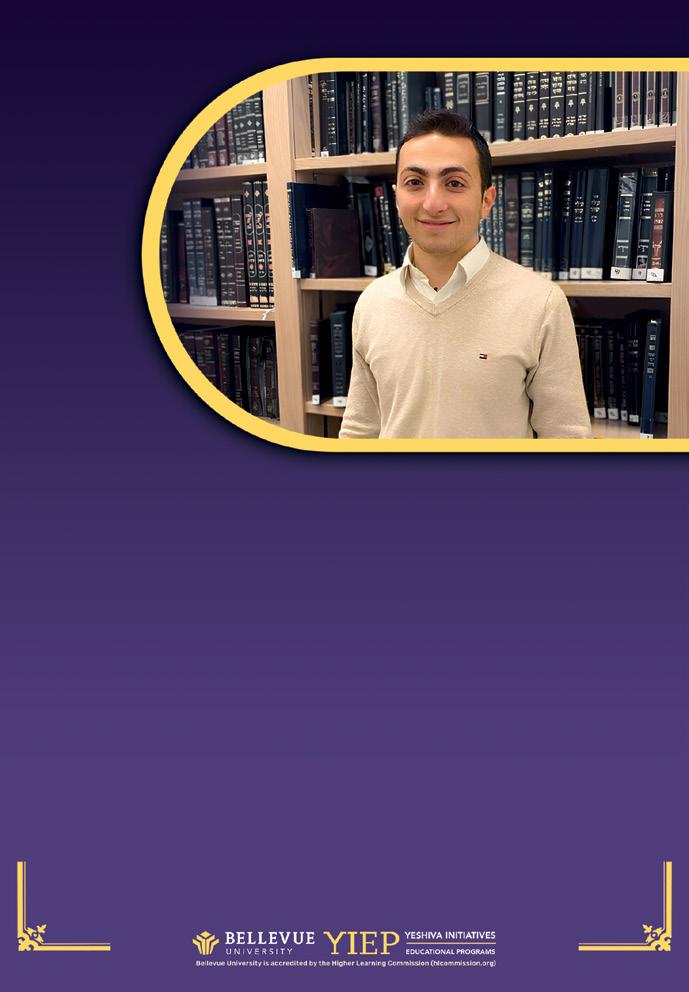






Dr. Ethan Eisen, PhD
OU ISRAEL PARENTING COLUMN
Parenting Our Adult-Children
DR. ETHAN EISEN, PHD
OU ISRAEL PARENTING COLUMN
As parents, we often think that as time goes on, our acquired experience ought to make parenting simpler. But what many parents find is that as their child gets older, the challenges of parenting become more complex. One aspect of this complexity that many parents raise is the shifting relationship with their child as the child grows through adolescence into early adulthood. During this time, the child is clearly going through an array of transitions, both externally and internally. As a result, the relationship between the child and his parents is changing, and parents may struggle as they navigate this shift.
Dear OU Parenting,
many parents face is figuring successfully adapt their relationship a younger child into an adult relationship with an adult child.

Supporting Injured Soldiers
when responding to children under these circumstances.
Many thousands of parents around Israel are confronted with a new reality that their child, returning from war, has suffered an injury. In some cases, the injuries can be healed through rehabilitation, while other injuries are permanent and require longterm medical care. Some injuries may cause relatively minimal changes in the soldier’s day-to-day life, while other injuries lead to far-reaching limitations. Much can be written about this topic, and for this brief column, I want to mention aspects of this challenge on three different levels: individual, family, and communal.
Following the recent string of terrorist attacks, my son, 11, has become very anxious. I, of course, have also been affected by all the loss and trauma. I’m not sure how much or how little to share with him in general and specifically regarding my own emotional experience. For example, should I try not to cry and be sad around him? T.R.
these difficult feelings are not unusual, it often can be helpful to have a consultation with a professional who can help assess whether there are concerns that require greater attention.

Michal Silverstein, MS
Dear T.R.
Thank you for asking this very relevant and timely question.
Adults as well as children are overwhelmed with emotions when they hear about a terrorist attack. When they become more frequent, the feeling of uncertainty and loss of control can create much anxiety. There are certain guidelines to keep in mind
One reason this transition confusing is that the duration to adulthood, for many people, form and may stretch over many The traditional Western value, it was never reality for many that a person turns 18 and becomes responsible for himself. He starts some money, lives on his own, pays way, and looks to get married, short order. All of these lifecycle would indicate that the child has an adult.
Firstly, it’s important to give children a safe space to speak, meaning a space to express them selves in the way that is natural for them. Some children don’t have much of a reaction and others will cry, show anger and frustration. They may say things that you don’t agree with or challenge you. Giving them the space to do this is crucial.
Next, when they ask questions, try to give them accurate information, answering only the questions they ask. Stay focused. It’s not necessary to elaborate or get sidetracked by politics or other similar situations. Explanations should be given in an age appropriate manner. Just like your rules are age appropriate your discussions should be as well. Having more detailed, graphic conversations is more appropriate with an 18 than a 10 year old.
On the individual level, the injured soldier may experience a wide range of emotions, and he may move between these emotions in ways that can be unexpected and surprising even to him. At times, the injured soldier may feel determined and hopeful as he pushes forward through his recovery and rehabilitation. During these times, he may be able to approach the adversity with humor. At other times, he may experience grief and despair over the loss of some aspects of the life he imagined for himself and the challenges that he’s facing, or over chronic pain associated with the injury. These feelings often come with irritability or anger, and this change in mood can be disorienting for both the soldier and his loved ones. While
Most parents understand that for a younger child, instruction, guidance, and oversight are intrinsic to their roles as parents. Parents also know that just because they utter “Baruch she’petarani“ that does not mean the end of their responsibilities toward their child. However, most parents recognize that at a certain point, their child becomes an adult, and as such, he is now responsible for himself and his own decisions. Ideally, the child and his parents form what we might call an “adult relationship.” The challenge that

For Sale:
25 Ben Maimon, 4 rooms, 113m, 2 bathrooms, porch, 1st floor, elevator, 6.2 million NIS
Smadar 050-3114040 // 02-642-4329 smadi_bida@walla.co.il
As mentioned, a soldier’s recovery from injury often happens within a family system, which both affects and is affected by this process. Practically, the soldier may require any number of accommodations in support of his recovery, and navigating these adjustments presents challenges similar to any kind of change in the family. Families might need to shift their schedules as family members are called upon to accompany the soldier to medical appointments. Tasks historically performed by the injured soldier are now delegated to other people. Families also may need to make physical changes to the layout or structure of the home to accommodate the soldiers’ new physical limitations. Family activities, such as trips or Shabbos plans, may be changed or curtailed.
It’s important to keep an eye out for both emotional and physical signs of distress. If your child looks sad, has crying spells, becomes fearful or angry or is experiencing changes in sleeping and eating patterns, he may need extra help processing the current state of events. Be aware of behavioral changes.
Regarding your own emotional state, it’s important to model emotions in front of your children. Seeing you express your feelings will allow your child to do the same. That being said, there is also a limit. You do not
From an emotional or psychological perspective, these adjustments can be challenging for the soldier and the family. Many soldiers express feeling frustrated, even guilty, about the additional support they require from their family. For the families, in addition to the determination and
But in today’s world, and especially frum communities, the markers hood are far less clear. Young typically not able to pay their own to some combination of advanced study, attending college or university, a higher cost of living. There emphasis on marriage, such men and women marry and have years before they are able to support their young family. This cated reality can make it difficult out the contours of an adult relationship between parents and their child.
The slow march toward independence means that there are not clear cations for where the child exists
68 TORAH TIDBITS 1560 / SHMINI
70 TORAH TIDBITS 1514 / EMOR
72 TORAH TIDBITS 1516 / BAMIDBAR
purpose that they feel in supporting their injured loved one, many experience grief, exhaustion, and burnout as they adjust to life’s new realities. They may feel guilty that they struggle with the changes in their household and schedule. Old family conflicts can also resurface as they negotiate the best way to share new responsibilities in the home.
Ultimately, families want to get to a place where they have a shared sense of acceptance, patience, and validation, although achieving this goal is, of course, much easier said than done. In my experience, families are most successful in navigating these changes when they commit time periodically to discussing the progress, commit to doing so in a nonjudgmental and validating way, and allow all relevant parties to share their perspectives. The complexity of family relationships means that achieving the desired cohesion may not happen on its own, so prioritizing maintaining strong family cohesion is an important ingredient to success.
From a community perspective, there are both short term needs, and longer term considerations, and as many people have attested, communities around Israel and beyond have mobilized to help those

in need. Most immediately, coordinating with the family to help with daily tasks like carpools, cooking, and laundry, can be invaluable to families who are in the adjustment phase. Communities can also look for additional ways to make public spaces and activities more accessible to people with disabilities. In the longer term, taking steps to ensure that both the injured soldiers and their families are appreciated, included in communal activities, and receive support when needed, may require appointing individuals or a committee who are dedicated to this role.
People have tremendous capacity for resilience if given the right support, and this holds true for our injured soldiers. Let us pray that Hashem helps us, as a nation, remain diligent in supporting our injured soldiers and their families through their recovery and rehabilitation.

OU ISRAEL CENTER 69 Securities offered through Portfolio Resources Group. Inc., member of FINRA, SIPC, MSRB, SIFMA U S B R O K E R AG E S E R V I C E S I N I S R A E L Get the Best of Both Worlds Kee p yo ur mo ney in th e US an d rec ei ve lo ca l exp er t in vestm en t advice 02-624-0995 054-599-9530 aaron@lighthousecapital.co.il www.aaronkatsman.com CALL
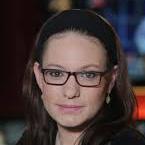

THE DAILY PORTION
THE DAILY PORTION
BY SIVAN RAHAV-MEIR
BY SIVAN RAHAV-MEIR
Experiencing Pesach for the First Time at Age 30
International Bible Quiz Champions Speak
International Bible Quiz Champions Speak
He did not agree to be photographed, but allowed me to photograph the booklet he held in his hand. It was a booklet that introduced Judaism to children.
Much excitement has surrounded Emunah Cohen and Neta Lax, the two fresh winners of the annual International Bible Quiz. Yesterday I interviewed them and heard their story.
the first time?' Yet I simply forgot it. I thought afterwards that HaShem caused me to forget the answer in order to remind me that I do not know everything, that I am human and not perfect."
the first time?' Yet I simply forgot it. I thought afterwards that HaShem caused me to forget the answer in order to remind me that I do not know everything, that I am human and not perfect."
He approached me at the end of my lecture and introduced himself: 30 years old, an accountant from Amsterdam who was attending the “Go Jewish” Shabbat gathering that had been organized for young Jewish men and women from throughout Europe.
Much excitement has surrounded Emunah Cohen and Neta Lax, the two fresh winners of the annual International Bible Quiz. Yesterday I interviewed them and heard their story.
It turns out that they studied long hours together and were confident they would be the leading competitors. "We planned on winning together," Emunah revealed. "We thought both of us would answer every question correctly so that we would both be champions, tied for first place.
"The more you learn," Neta said, "the easier it gets. When you learn a lot of Tanach (Bible) you simply see how everything connects to your life. I truly felt that what I learned accompanied me wherever I went. It made my heart feel good."
sages, Rabbi Akiva, who began to learn Torah at the age of 40. Like a child, Rabbi Akiva had to start with the letter aleph, followed by the letter bet and so on, until he reached the highest level of Torah scholarship.
"The more you learn," Neta said, "the easier it gets. When you learn a lot of Tanach (Bible) you simply see how everything connects to your life. I truly felt that what I learned accompanied me wherever I went. It made my heart feel good."
It turns out that they studied long hours together and were confident they would be the leading competitors. "We planned on winning together," Emunah revealed. "We thought both of us would answer every question correctly so that we would both be champions, tied for first place.
But in the end Emunah won. "They made a big deal about our big hug after I lost," Neta said. "But it was the easiest thing to share in her happiness. Besides, we were just relieved that the competition was finally over."
In the course of the entire contest, Emunah made only one error. "I knew the answer to the question: 'When did King David cry for
Since the horrible massacre on Simchat Torah, he decided that he wanted to study Judaism. He had to start somewhere and so, without embarrassment, he was learning from this booklet. He is now reading the chapter on Passover and is learning the meaning of three basic words: pesach, matzah, and maror. He wants to fully understand the Haggadah and all of us would do well to emulate the enthusiasm with which he is preparing for the Seder.
In closing, Neta declared: "The two of us will continue to study the Tanach. There were parts of the Tanach that were not in the material covered by the quiz, and it's important for us to learn them too."
But in the end Emunah won. "They made a big deal about our big hug after I lost," Neta said. "But it was the easiest thing to share in her happiness. Besides, we were just relieved that the competition was finally over."
In the course of the entire contest, Emunah made only one error. "I knew the answer to the question: 'When did King David cry for
I photographed several pages from his booklet to illustrate its appeal to children and others at a beginners’ level. I told him that he was following in the footsteps of one of our greatest
NETANYA 4 ROOM APT. RENTAL,
NETANYA 4 ROOM APT. RENTAL,
Nitza Blvd, 1 month min. Amazing sea view, kosher, furnished: May, June, July 2023 from September 2023 short or long term
Nitza Blvd, 1 month min. Amazing sea view, kosher, furnished: May, June, July 2023 from September 2023 short or long term APTNETANYA@GMAIL.COM
APTNETANYA@GMAIL.COM
In closing, Neta declared: "The two of us will continue to study the Tanach. There were parts of the Tanach that were not in the material covered by the quiz, and it's important for us to learn them too."
And Emunah had this recommendation: "Study the Bible for 5 minutes every day. Not for school, not for the Bible quiz, but just for how much fun it will be."
And I wondered how many other surprising developments may be occurring in the world today without our noticing them, and how many other individuals may be undergoing a transformation similar to what has happened to this young man. On Simchat Torah, a 30-year-old
And Emunah had this recommendation: "Study the Bible for 5 minutes every day. Not for school, not for the Bible quiz, but just for how much fun it will be."
Sivan Rahav-Meir is a media personality and lecturer. Married to Yedidya, the mother of five. Lives in Jerusalem, and formerly served as the World Mizrachi Shlicha to North America. Sivan lectures in Israel and overseas about the media, Judaism, Zionism and new media. She was voted by Globes newspaper as most popular female media personality in Israel and by the Jerusalem Post as one of the 50 most influential Jews in the world.
Sivan Rahav-Meir is a media personality and lecturer. Married to Yedidya, the mother of five. Lives in Jerusalem, and formerly served as the World Mizrachi Shlicha to North America. Sivan lectures in Israel and overseas about the media, Judaism, Zionism and new media. She was voted by Globes newspaper as most popular female media personality in Israel and by the Jerusalem Post as one of the 50 most influential Jews in the world.



70 TORAH TIDBITS 1560 / SHMINI OU ISRAEL CENTER 63
OU ISRAEL CENTER 63
will continue to study the Tanach. There were parts of the Tanach that were not in the material covered by the quiz, and it's important for us to learn them too."
And Emunah had this recommendation:
"Study the Bible for 5 minutes every day. Not for school, not for the Bible quiz, but just for how much fun it will be."
Dutch accountant knew nothing about his heritage and his people and suddenly now, on the holiday of Passover, he will be privileged, for the first time, to experience leaving slavery for freedom.
Sivan Rahav-Meir is a media personality and lecturer. Married to Yedidya, the mother of five. Lives in Jerusalem, and formerly served as the World Mizrachi Shlicha to North America. Sivan lectures in Israel and overseas about the media, Judaism, Zionism and new media. She was voted by Globes newspaper as most popular female media personality in Israel and by the Jerusalem Post as one of the 50 most influential Jews in the world.











OU ISRAEL CENTER 71 BUY WITH US SELL WITH US Tel +972 50 446 9515 www.israel -properties.com Israel is our home, our place, it belongs to all of us Israel Properties is here to help you find your home, your place where you belong OU ISRAEL CENTER 63 and hours would planned revealed. every be made Neta in relieved Emunah to for
is reluctant to send Yishmael away and Yitzchak seeks reconciliation with Yishmael and seeks to bless Esav.
6th Aliya (25:1-11) Avraham marries Keturah; they have 6 sons. All that Avraham has goes to Yitzchak; these are sent eastward with gifts. Avraham dies at age 175; he is buried by Yitzchak and Yishmael in Ma’arat Hamachpelah. Yitzchak is blessed by G-d: he lives in Beer L’chai Roi. The transition from Avraham to Yitzchak is complete. While G-d has been a silent partner in this parsha, here He completes the generational transfer – He blesses Yitzchak. The Jewish people will be Yitzchak and not Yishmael.

7th Aliya (25:12-18) The generations of Yishmael are enumerated. Yishmael dies. His descendants dwell from Egypt to Assyria. Yishmael’s story is brief. He has numerous and powerful offspring. The brevity
DONATE APARTMENT FOR ISRAEL ADVOCACY
US tax deductible
DETAILS: 02-6236368
A SHORT VORT
is to emphasize that the Torah is not as interested in the history of power as in the history of the covenant of G-d with the Jewish people. And that will be told at great length.
5670
HAFTORAH CHAYEI SARAH 1 KINGS 1: 1-31
The theme of this week’s haftorah echoes the theme in our parsha which mentions both the death of Sarah and Avraham.
King David was an older man and a woman was assigned to him to serve him and provide warmth.
Adoniyahu, one of King David’s sons, began to prepare for ascension to his father’s throne. This was despite the fact that King David expressed his wishes that his son Shlomo succeed him.
Adoniyahu convinces two very significant personalities - the High Priest and the commander of King David’s armies - to
 BY RABBI CHANOCH YERES
R av, Beit Knesset Beit Yisrael, Yemin Moshe
BY RABBI CHANOCH YERES
R av, Beit Knesset Beit Yisrael, Yemin Moshe
When Avraham addresses the people of Cheit, trying to acquire a burial spot for his wife, he says “Ger V’Toshav Anochi Eimachem” (23:4) “A Stranger and a Resident am I with you”
This seems to be a contradiction. If one is a stranger than he is not a resident, if he is a resident than he is no longer a stranger. What did Avraham mean?
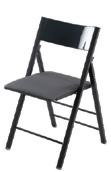
The Magid of Dubno (Jacob ben Wolf Kranz 1741-1804) explains that Avraham watched how he spoke in this tense situation in order to, both, state his truth and be able to keep the peace -Shalom Bayit. Avraham said, on the one hand, “I am a Resident’ due to G-d’s promise to receive this Land and on the other hand, I still need your agreement to purchase a plot. In other words, Avraham implied “I am the resident” and you are the “strangers”, while they understood him as saying that “they” are the residents and Avraham is the stranger.
The peace was kept, and Avraham remained true to his ideals.
Shabbat Shalom


We are a young senior couple looking for a 1 bedroom furnished apartment in Jerusalem from December 2021-June 2022
0524419731
72 TORAH TIDBITS 1560 / SHMINI FOLDING CHAIRS WWW.FOLDEES.CO.IL | 058-707-8181 • STYLE & COMFORT • MANY COLORS & DESIGNS • FAST DELIVERY HIGH QUALITY PREMIUM Flying Soon? Travel with Confidence 1UniTravel - Medical Insurance at great prices Choose from multiple options 1unitravel.brokersnexus.com 1UniSim - Sims for USA and Worldwide Starting at $40 sales@1unisim.com Call 077-400-3199 or USA 718-715-0001 NACHI REALTY 054-461-3943 New Price - Rechavia Ground floor completely accessible, spacious & airy, 4 rooms, 10m mirpeset, parking, tons of potential, 2 entrances so the 3rd bedroom can be used as a clinic /office or studio unit. 3.97m shekel For Rent in Rechavia Rashba street, 2 rooms, 50m, 1.5 bathrooms, mirpeset, small building, 12 stairs up. available from April.
NIS/month For Rent in Katamon 30m studio on Bustani street, ground floor, small garden, for independent people over 55. 3500nis/month incl va'ad bayit & heat. Please note the updated mailing address for the OU Israel Center: OU Israel 22 Keren Hayesod POBox 1441 Jerusalem 9101302 A small Sefer Torah with its own Aron Kodesh is available to shiva houses or for any other necessary occasion on a temporary free-loan basis. If needed call Uri Hirsch 0545513173 Gemach for Chatan and Kalla: Meals for wedding and Sheva Brachot at cost Eida Hachareidis Hechsher Tel:052-633-1744 gadgadood@gmail.com KNOW WHAT TO ANSWER FREE COUNTER-MISSIONARY Videos • Parsha Insights • Booklets • Counseling Rabbi Bentzion Kravitz • rabbikravitz@JewsforJudaism.org 12 TORAH TIDBITS 1440 / CHAYEI SARA 5782
Real Life Rescues

1221
Thank you, God, for Giving me the Privilege of Saving a Life
Real Life Rescues
EMT Saves Baby from Severe Allergic Reaction Following First Taste of Tahini
On a recent Monday morning, Sarit Badani, a nurse midwife at Sheba Tel-HaShomer Medical Center and an active United Hatzalah volunteer, went for a short walk near her house in Moshav Achiezer, located in central Israel. Moments after returning to her house, she received an alert on her communications device regarding a man who had lost consciousness just four houses down the street. Badani immediately ran to her car, where she keeps her medical kit, and arrived at the scene in under 90 seconds.
On a recent Tuesday morning in Jerusalem, parents were feeding their 6-month-old baby and introduced him to tahini for the first time. Within minutes, the baby developed a severe allergic reaction. The infant's parents immediately called emergency services, seeking urgent help.


KETER ADVISORS: THE CROWN JEWEL OF ISRAEL REAL ESTATE
IL: 972.52.682.9367 info@keteradvisors.com
US: 786.385.8859 www.keteradvisors.com
NORTH NETANYA - STARTING AT 3.21M NIS

United Hatzalah volunteer EMT Shalom Klein, alerted to the emergency through his proximity alert system, sprang into action as the first responder on the scene. Arriving promptly, Shalom was confronted with a distressing sight - a baby boy with swollen lips and tongue, struggling to breathe, and covered in a worrisome rash.
Recognizing the symptoms as indicative of an anaphylactic shock, the volunteer knew immediate intervention was crucial. Without hesitation, he administered a life-saving EpiPen injection, delivering a dose of epinephrine to counteract the severe allergic reaction. The powerful medication quickly took effect, and the infant's breathing became less labored. The swelling in the lips and tongue began to subside, providing much-needed relief to the child.
Finding the man sitting on a chair, Badani began checking for vitals and found that the patient was not breathing and had no pulse. She immediately reported back to dispatch, as United Hatzalah EMTs Yisrael Avraham and Nissim Daus, who arrived at the scene shortly after her, moved the man to the floor. The responders initiated CPR and attached a defibrillator.
As the symptoms continued to recede, the EMT monitored his condition while awaiting the arrival of a mobile intensive care ambulance. Several minutes later, the ambulance team arrived and transported the infant to the nearest hospital for further treatment and observation.
Reflecting on the incident, Shalom emphasized the importance of having an EpiPen readily available.
"It's a great thing I had an EpiPen in my medical kit," he stated. "An EpiPen can save a person's life within minutes and is a huge help for both EMTs and patients."

Badani and the team performed chest compressions and administered assisted ventilations to the patient. After a while, an intensive care ambulance crew arrived at the scene. The paramedic attached a heart monitor and administered medication to the patient. After about ten minutes of extreme effort, the man’s pulse was restored. He was then transported to the hospital for further care.
“As a nurse midwife, I am used to performing CPR on infants, but it’s rarer for me to do it on adults,” recounted Badani after the incident. “I came back home afterward and said to myself ‘Woah, I had the privilege to be first at the scene, shortly after the incident began, which is such a critical moment’. I later heard that the doctors told the patient that, if not for the quick intervention of first responders, he would have had brain damage at the very least. I still have goosebumps; thank you, God, for giving me the privilege of saving a life.”
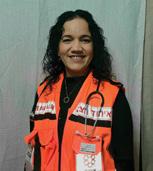
MOVE IN OR RENT OUT - 2025!


3 BEDROOMS 111 SQM + 12 SQM PORCH
4 BEDROOMS 129 SQM + 18 SQM PORCH INCLUDES:
SHABBAT
ASHKELON, MINI PENTHOUSE - NOW 2.55M NIS




ROOMY 5 ROOM APT - PARTIAL SEA VIEWS LARGE SUKKAH PORCH
W/PERGOLA + COVERED PARKING +
GYM IN BUILDING LARGE KITCHEN
3 TOILETS - 2 FULL BATHS
121 SQM APARTMENT + 23 SQM PORCH
10 MINUTE WALK TO MARINA, BEACH


DID YOU KNOW YOU CAN USE YOUR IRA AND 401K FUNDS TO BUY INVESTMENT PROPERTY IN ISRAEL WITHOUT TAX PENALTIES?
IL:
OU ISRAEL CENTER 73
NAHARIYA STARTING AT 1.69M NIS
972.52.682.9367 info@keteradvisors.com
786.385.8859 www.keteradvisors.com
US:
+
Izzy Leizerowitz Broker Fee: 2%
VAT
ELEVATORS + STORAGE ROOM + 1 SPOT PARKING (4 BEDROOMS = 2 SPOTS) + CENTRAL AC UNIT A B O U T T H E P R O P E R T I E S : S T A R T I N G A T : 3 BEDROOMS 1 69M NIS ($458K) 4 BEDROOMS W/SEA VIEWS 1 9M NIS ($515K)
BEDROOMS 104 sqm + 12 sqm Balcony STARTING FROM 3 21M NIS -------------------------BEDROOMS 125 sqm + 12 sqm Balcony STARTING FROM 3 4M NIS -------------------------ENTHOUSE - 170sqm + 56 sqm Balcony STARTING FROM 6.1M NIS (2 LEFT) -------------------------LL APARTMENTS INCLUDE PARKING & MACHSAN EXIBLE PAYMENT OPTIONS AVAILABLE WE DO PROPERTY MANAGEMENT EMPTY APARTMENT / LONG-TERM RENTAL SHORT TERM RENTAL / DURING CONSTRUCTION A R O J E C T - F R O M 1 . 7 7 M N I S 2 BEDROOMS - FROM 1 77M NIS 3 BEDROOMS - FROM 2 3M NIS 4 BEDROOMS - FROM 3 16M NIS W/SEA VIEWS SHABBAT ELEVATORS + STORAGE ROOM + CENTRAL AC UNIT PARKING - 4 BEDROOMS = 2 SPOTS A B O U T T H E P R O P E R T I E S : L A N D F O R I N V E S T M E N T O R B U I L D O R B O T H Investment - Zoned Agricultural Rosh Pina , Zichron Yaakov, Meir Shefiya Zoned Residential Land - Build Your Home! Hatzor Haglilee , Migdal, Yavniel
3






OU ISRAEL CENTER 75 CROSSROADS SUMMER APPRENTICESHIP PROGRAM
work in a supportive environment while earning a stipend for teens 14-17. For more information contact deborah@crossroadsjerusalem.org or Ayelet at 054-646-5304 ayelet@crossroadsjerusalem.org
2024
Register
Supervised
July 1st to July 31st
To


YACHAD
Torah Tidbits is proud to now share a monthly dvar Torah from OU Israel's Yachad program. It is an honor to share insights from Yachad members and their madrichim who will present their unique perspectives on the parshat hashavua.
This D’var Torah is a summary of a chavrutah between Dovid Oratz, Yachad Jerusalem Chapter Director and Naftali Stubin, an active Yachad participant from Afulah. Together they studied a teaching from Rabbi Yissocher Frand.
This week’s parsha contains a detailed list of the kosher and non-kosher animals in the Torah. The two signs of kosher animals are split hooves and that they chew their cud. The Torah goes through a detailed list of animals that possess only one of the two kosher signs. The shafan, or hyrax, is not kosher because it does not have split hooves, even though it does chew its cud. The same is true with the arnevet, rabbit, and gamal, camel. The Torah also lists the chazir, pig, which has split hooves, but does not chew its cud. The Midrash points out that for these four animals listed, the Torah goes out of its way to first mention the kosher sign and only after mention the sign that renders it NOT kosher.
We know that the Torah doesn’t waste a single word, so why does the Torah take the time to even mention the irrelevant
kosher signs? Why doesn’t the Torah get straight to the point and tell us that the animal is not kosher?
The Midrash points out that even when the Torah tells us that these animals are not kosher, it starts off by stating a praiseworthy characteristic. While an animal is not allowed to be eaten, the Torah makes a special effort to share a positive description first.
The message of the Midrash is clear; If Hashem sees fit to go out of the way to find something good to say, even when talking about an impure animal, how much more so must we strive to make every effort to find positive things to say about other people or situations before offering any negative assessment. This is not simply optimism and positivity, but an instruction from Hashem to elevate our speech and thoughts, recognizing the inherent value in all of Hashem’s creations and the kedusha in the world.
Yachad embodies this principle. We champion the strengths and abilities of each individual, fostering environments rich in respect, love, and appreciation. Our goal is to create healthy positive social environments. By highlighting the good, we cultivate a community where every member can thrive. In doing so, we mirror Hashem’s practice of focusing on the positive, paving the way for a world where the light of every soul is acknowledged and celebrated.
76 TORAH TIDBITS 1560 / SHMINI
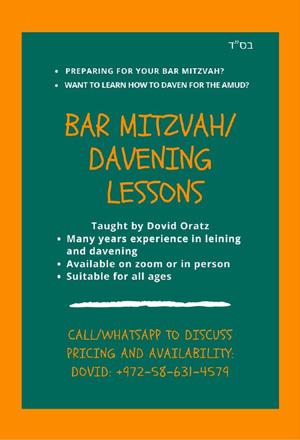
המלש האופר
הניאר תב הרוא
The family of RABBI SHOLOM GOLD TZ"L are collecting memories/stories /videos etc ..of their father.
Please email to: Goldofjerusalem@gmail.com
EXCLUSIVE FOR SALE
9 Shalom Yehuda St. Jerusalem
Three rooms completely accessible elevator, 65 sqm, storage, parking, 3rd floor, small building, close to a synagogue, public transportation and shops. Attractive price 2.800.00 nis Nissim Cohen
0522741181 | cnissim5@gmail.com
For sale In Moshav Aderet

Unobstructed view!


EXCLUSIVE FOR SALE
In a luxurious and sought-after are In a pastoral location On a half of dunam of land Modern and innovative design
Unobstructed view! You can see and feel the nature from every corner of the house Very high standard of building
The finishes are on a very high level 7 rooms, 4 bathrooms 90 square meters – to make an additional apartment (potential to be very profitable) Building permits to build a swimming pool
Private access road And there are many more perks... you need to come and see!
In our office there are many more interesting properties in Beit Shemesh and Ramat Beit Shemesh in areas that are specially adapted to the Anglo population
Rivky: 050-9693233

OU ISRAEL CENTER 77 //
Sderot Nahal Kishon
39


OU ISRAEL CENTER 79


The above should not be misconstrued as tax advice, legal advice, a recommendation, or an opinion regarding the advisability of participating in financial products of any kind or type, including but not limited to participation in donor-advised funds (DAF). The above is not meant to be a substitute for personal advice tailored to the client's needs, nor does it take the place of advice given by qualified professionals.
Maximize Your Impact. Minimize Your Taxes. New Approval from the Tax Authority Stock donations have never been more rewarding: Receive a full capital gains tax exemption and up to a 35% tax credit. Make the most of your contributions with JGive Platinum's donor-advised fund. For more information, email us at platinum@jgive.com or scan the QR code:

















































































 BY RABBI NACHMAN (NEIL) WINKLER Faculty, OU Israel Center Rabbi Winkler's popular Jewish History lectures can be viewed by visiting the OU Israel Video archive: https://www.ouisrael.org/video-library
BY RABBI NACHMAN (NEIL) WINKLER Faculty, OU Israel Center Rabbi Winkler's popular Jewish History lectures can be viewed by visiting the OU Israel Video archive: https://www.ouisrael.org/video-library







 donated by Marion & Michael Silman Ita Rochel 02-560-9125
donated by Marion & Michael Silman Ita Rochel 02-560-9125














































 BY RABBI EZRA FRIEDMAN Director, The Gustave & Carol Jacobs Center for Kashrut Education
BY RABBI EZRA FRIEDMAN Director, The Gustave & Carol Jacobs Center for Kashrut Education










 BY RABBI MOSHE TARAGIN R am, Yeshivat Har Etzion
BY RABBI MOSHE TARAGIN R am, Yeshivat Har Etzion























































































